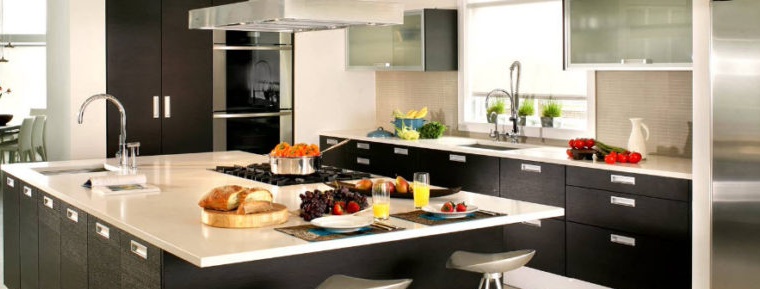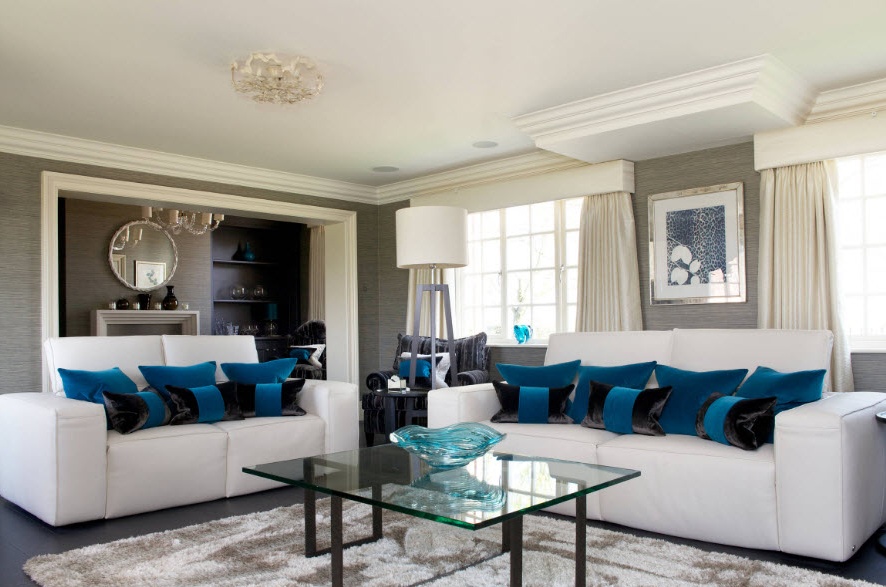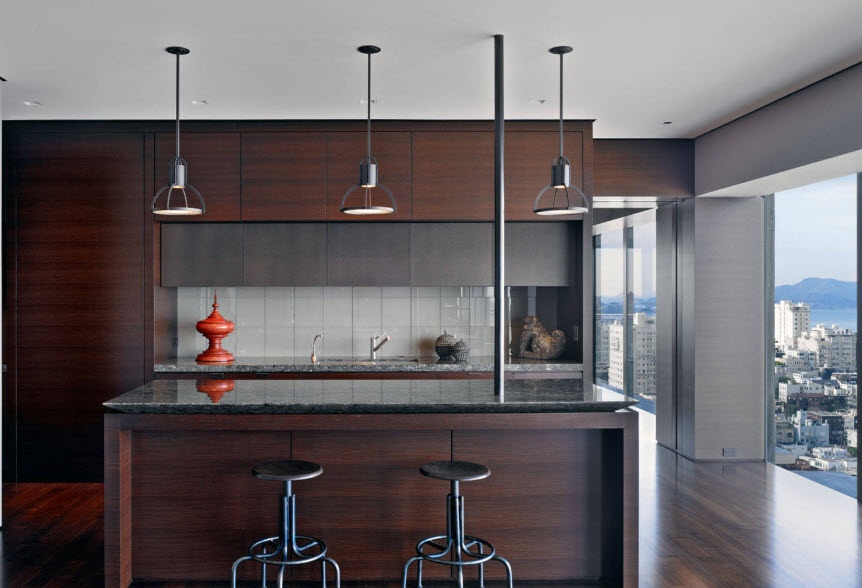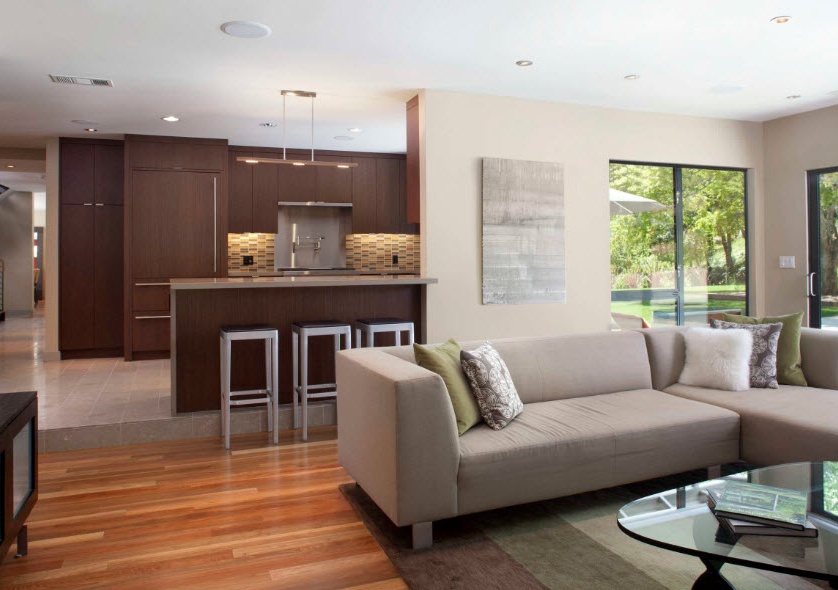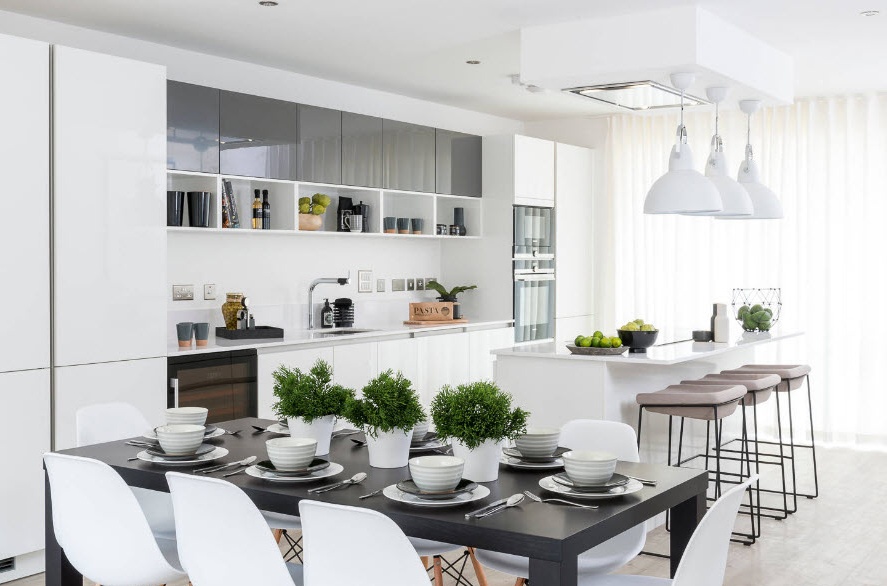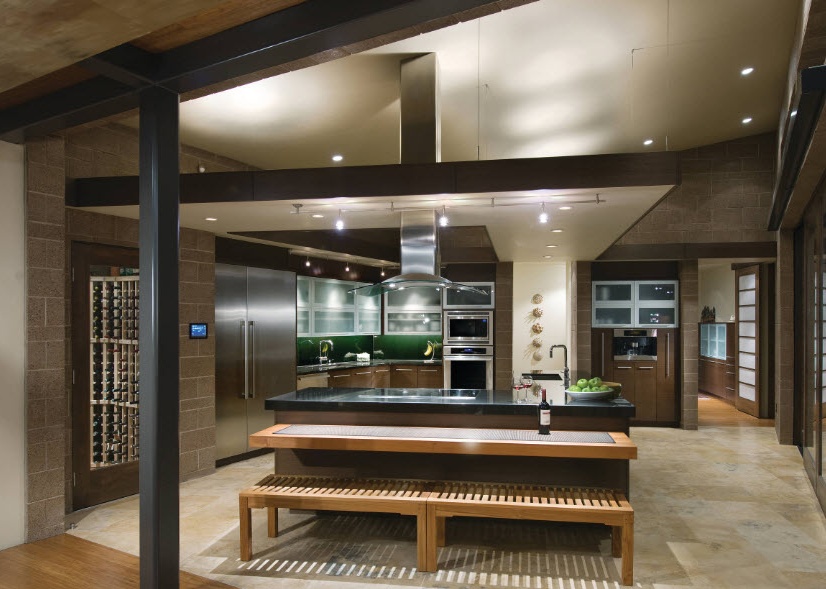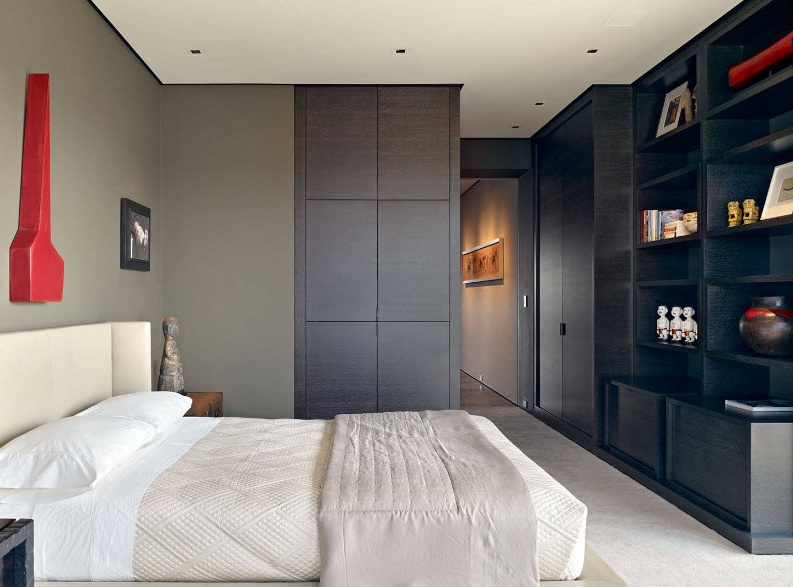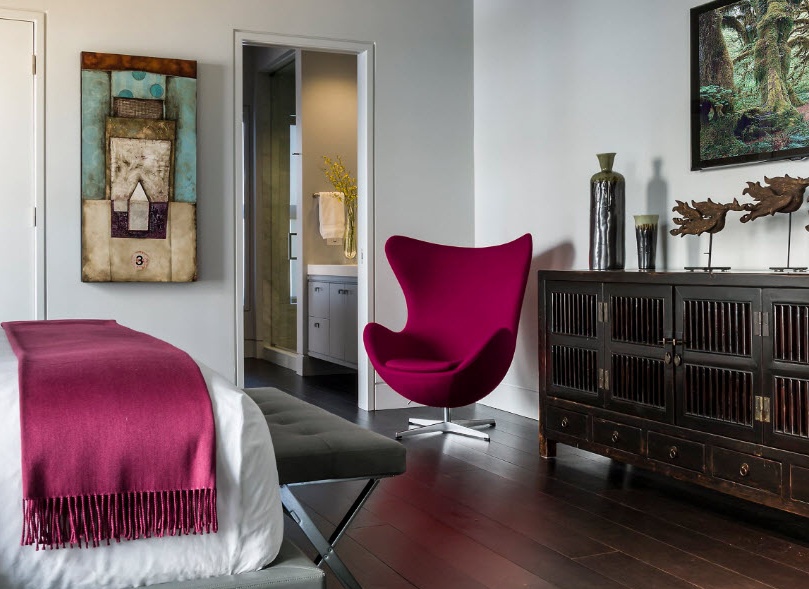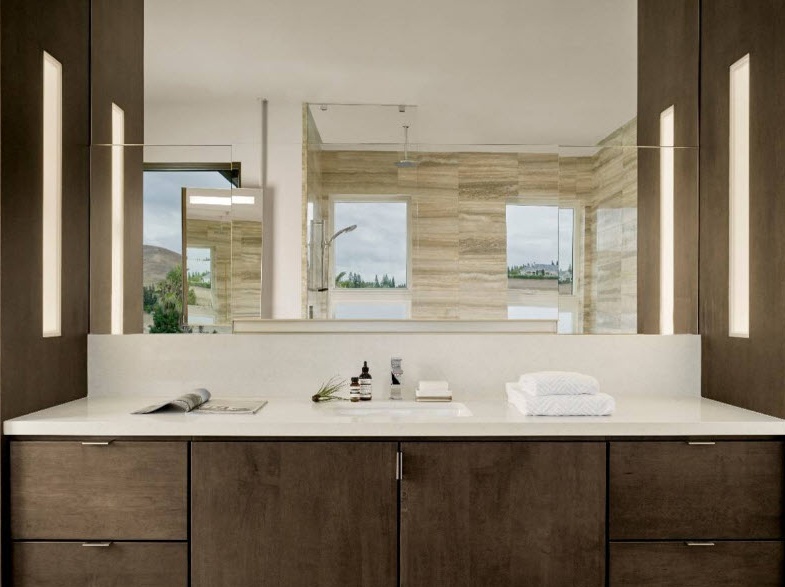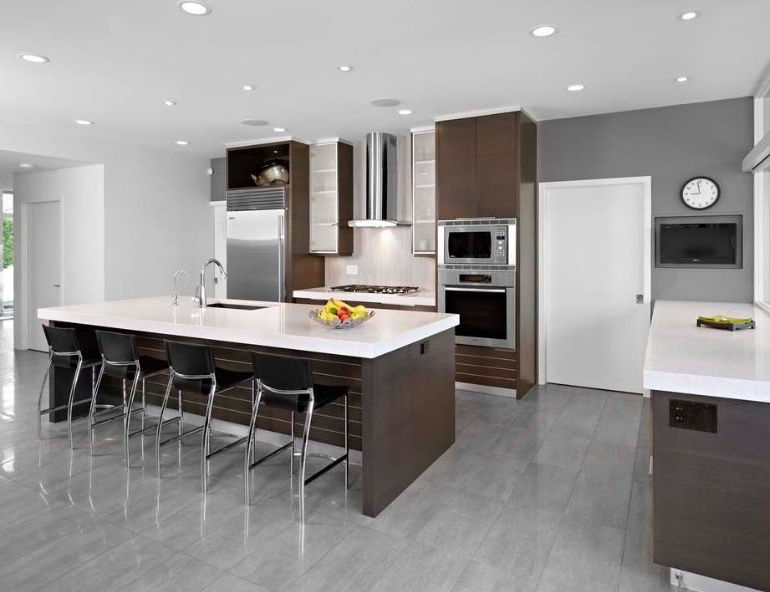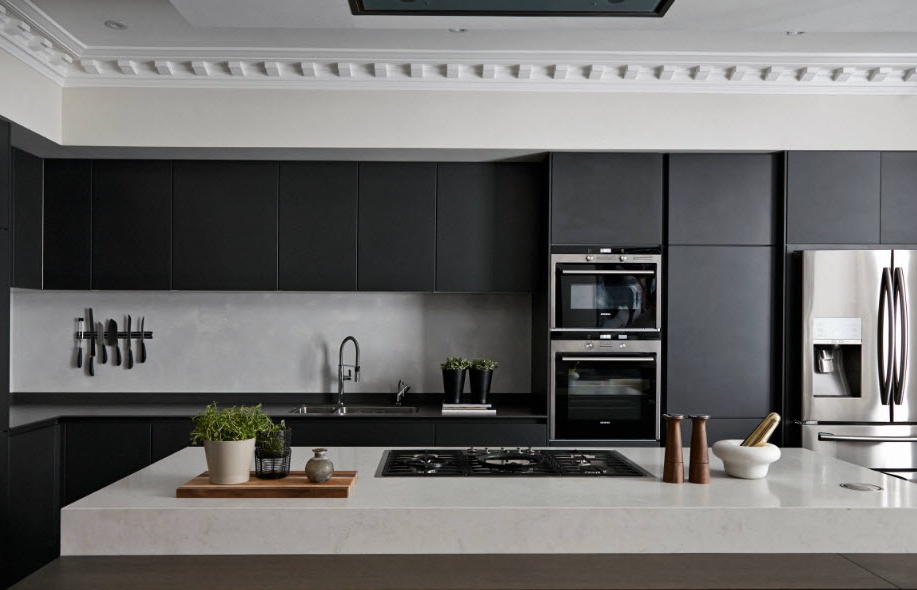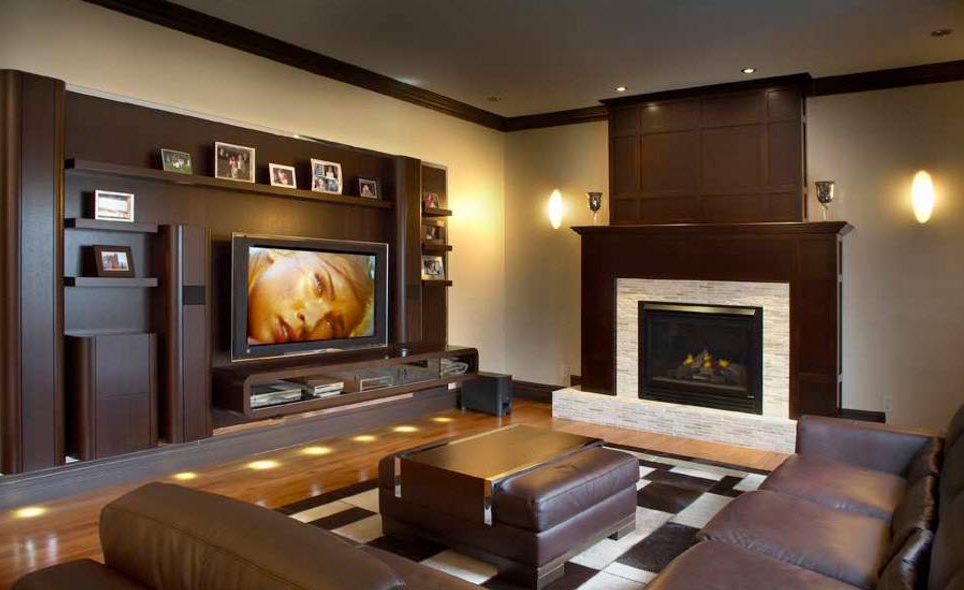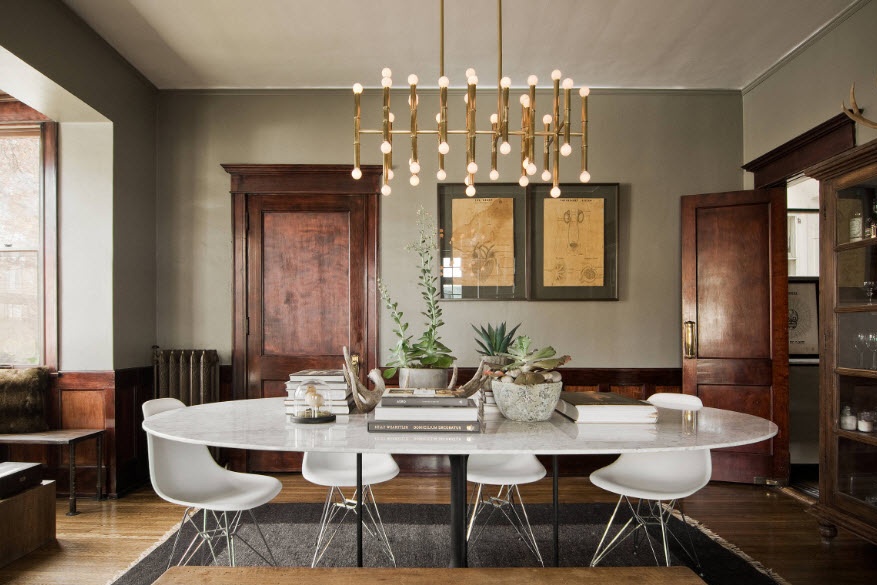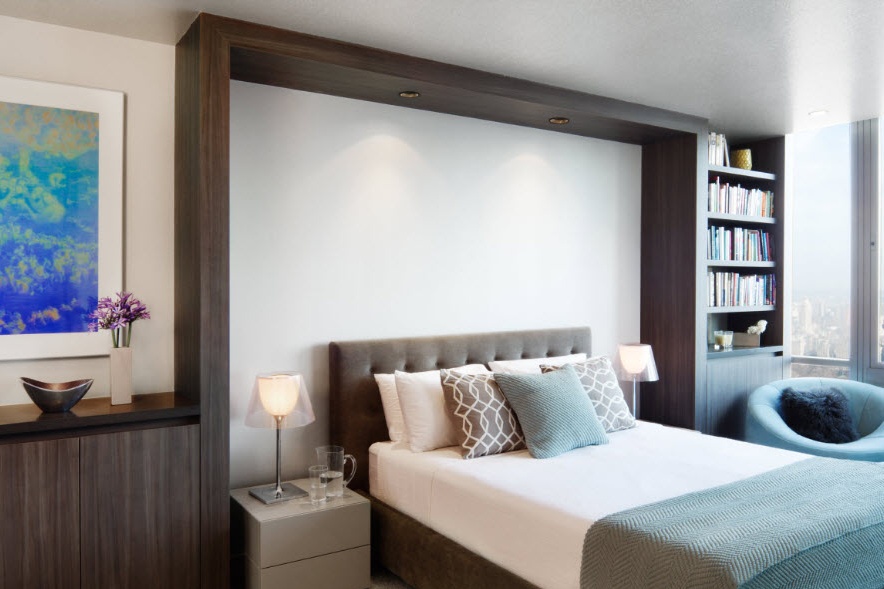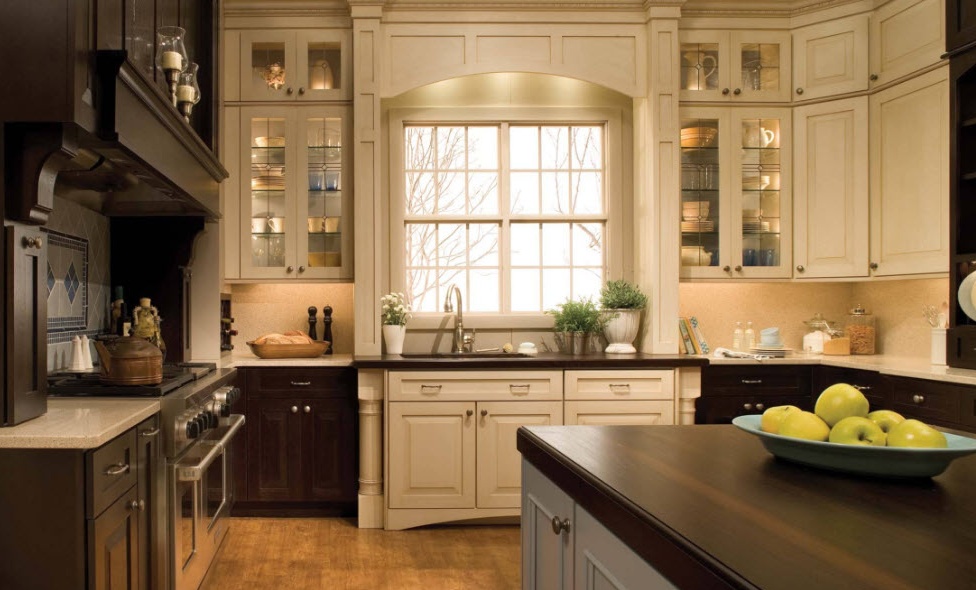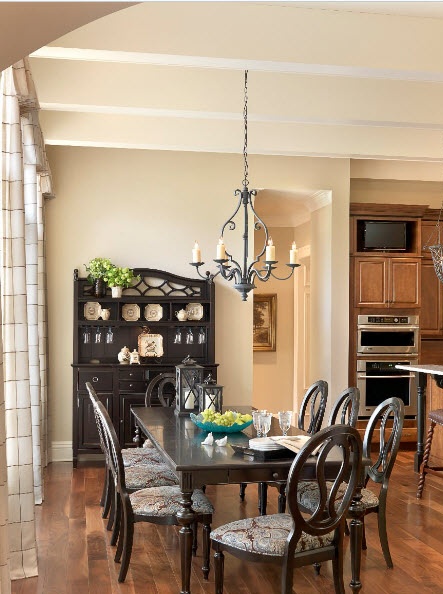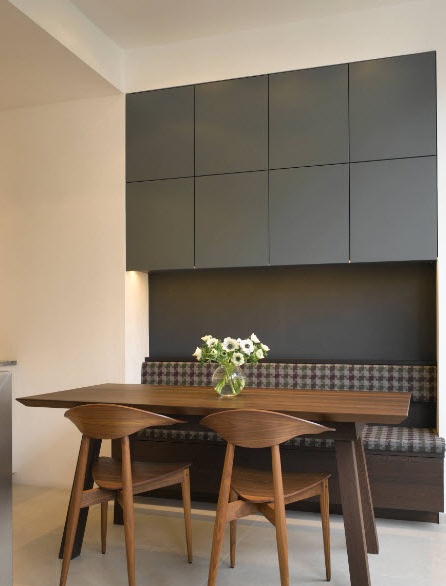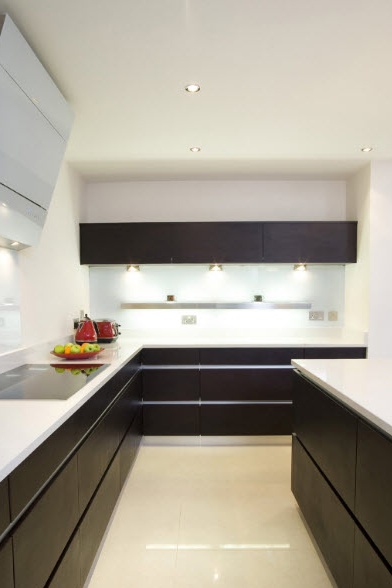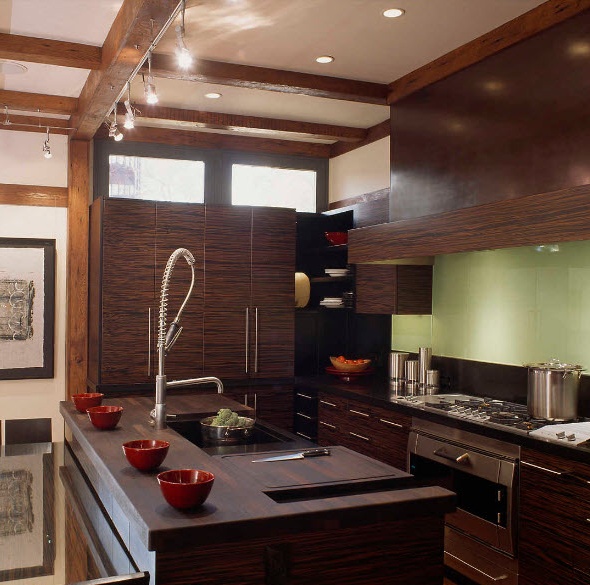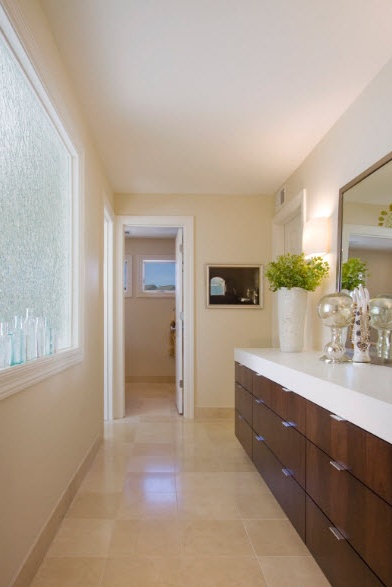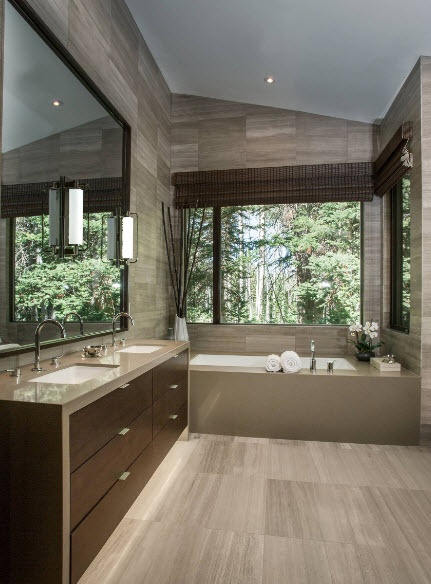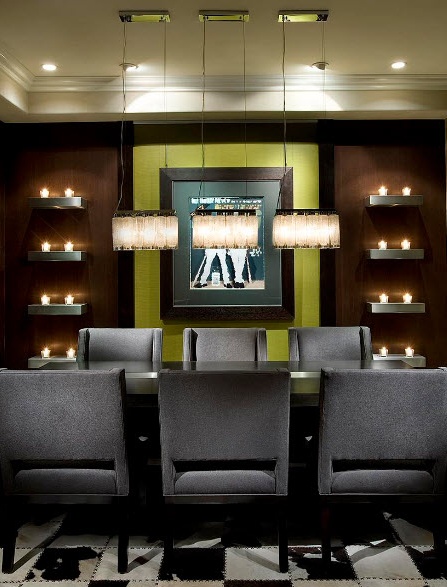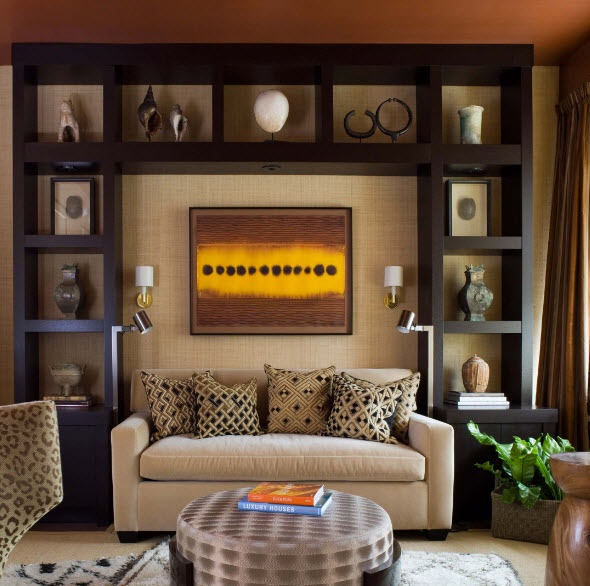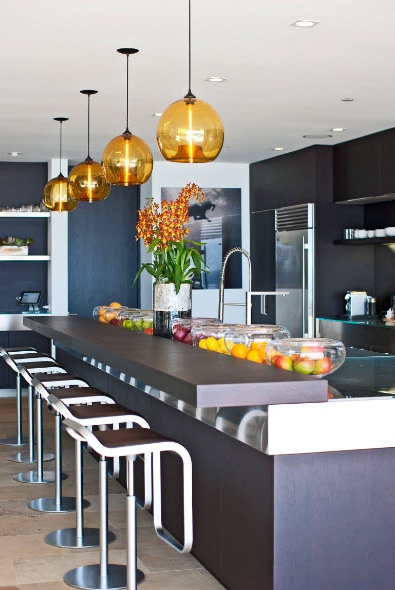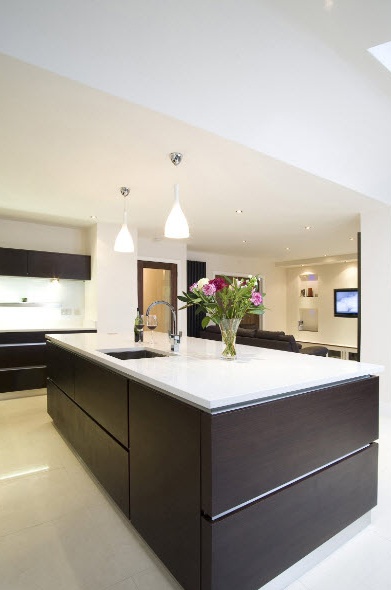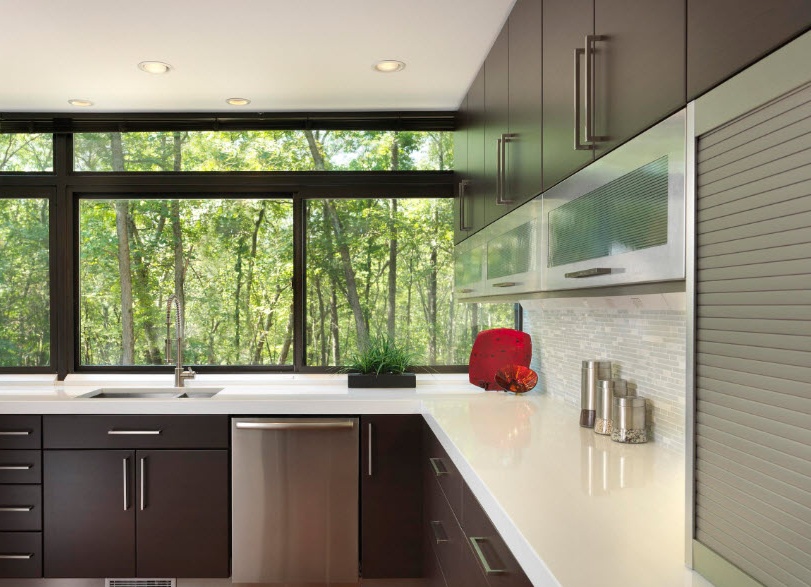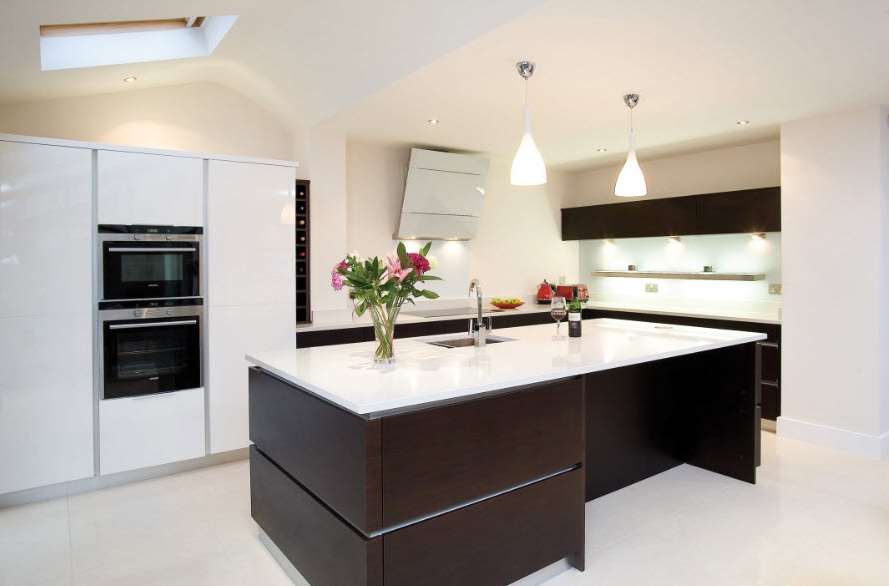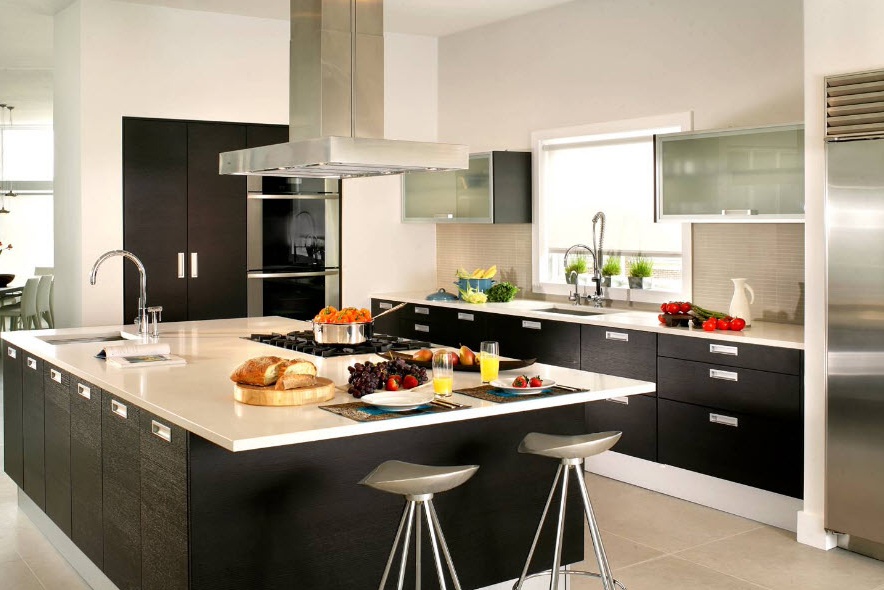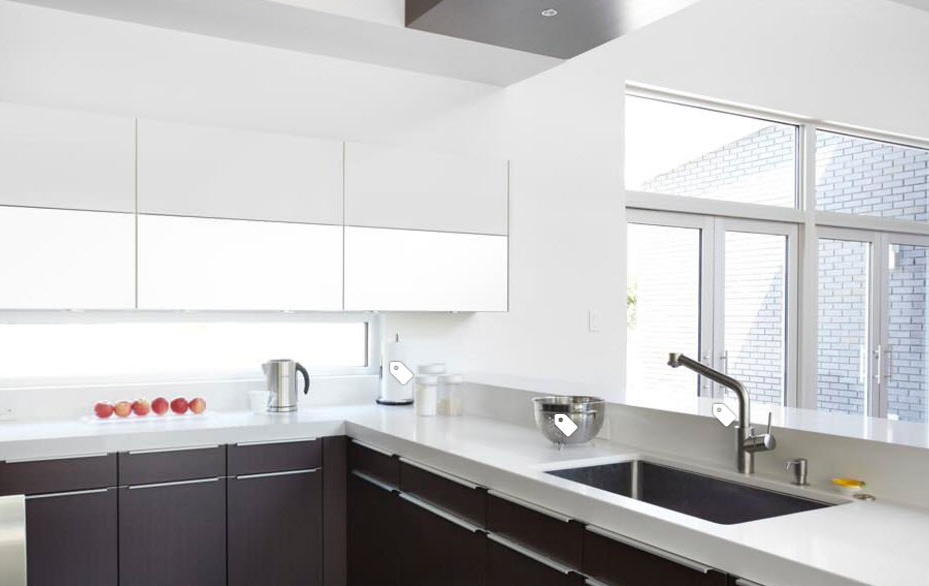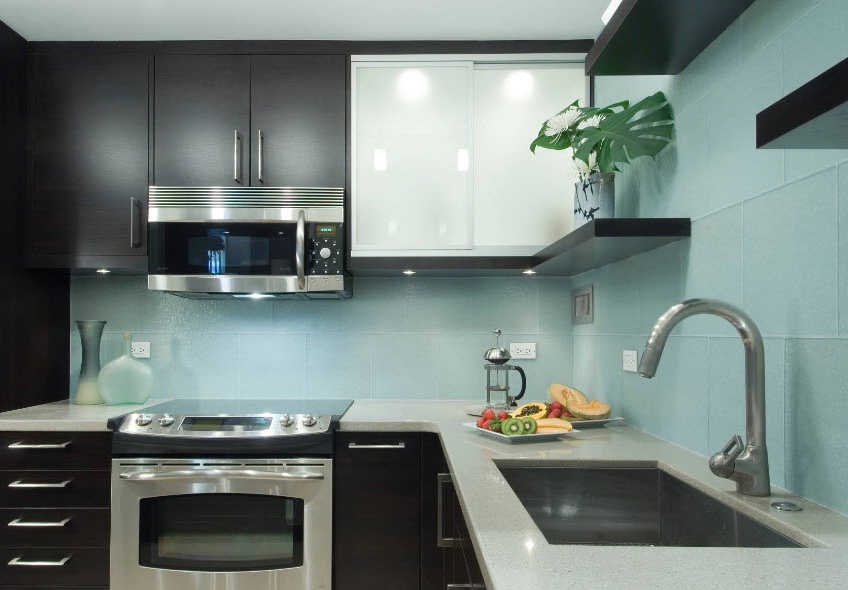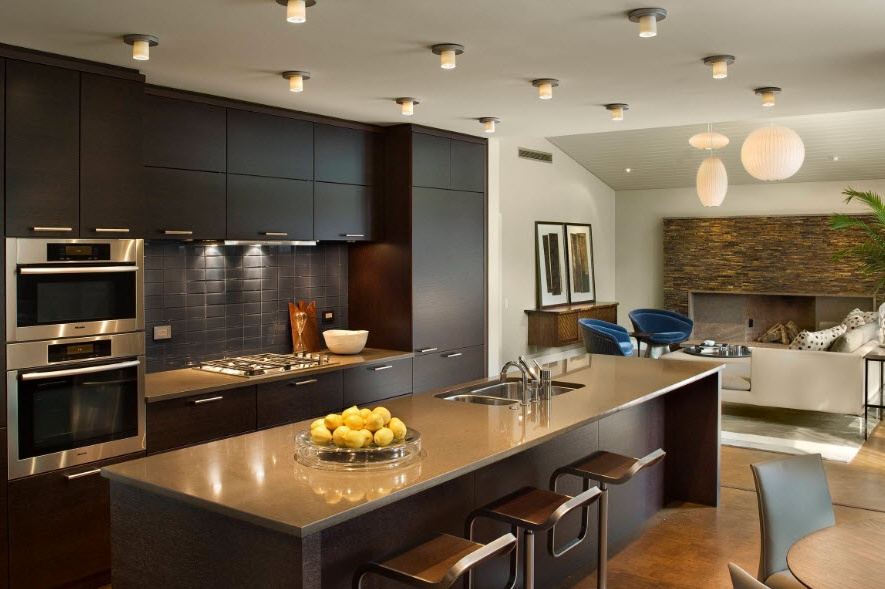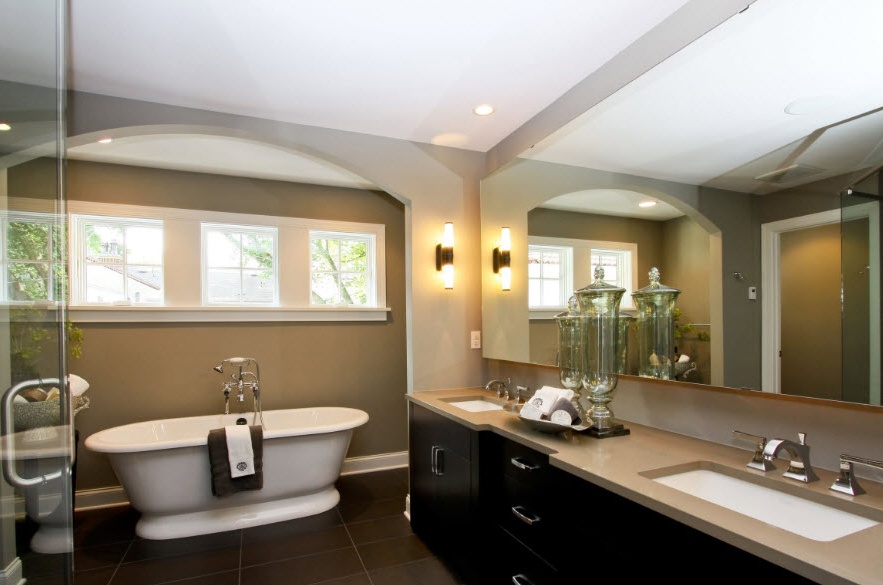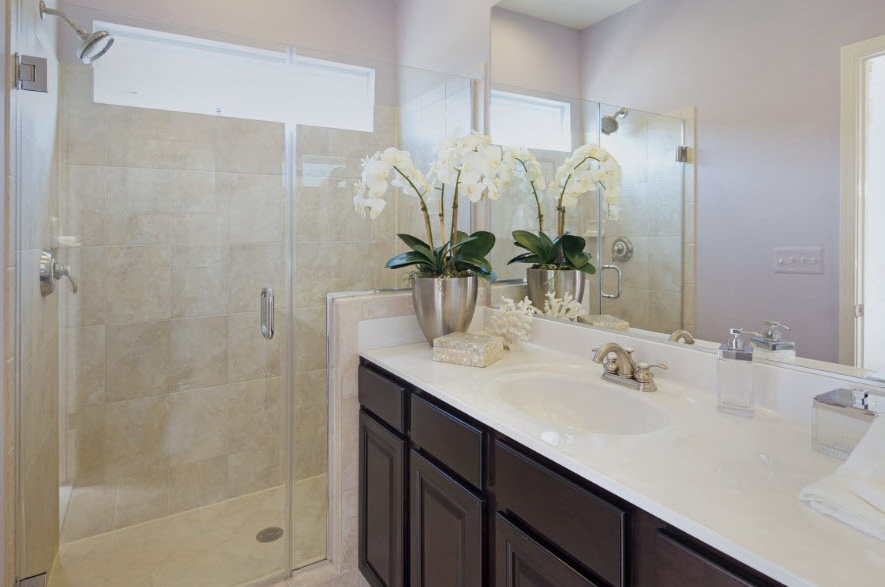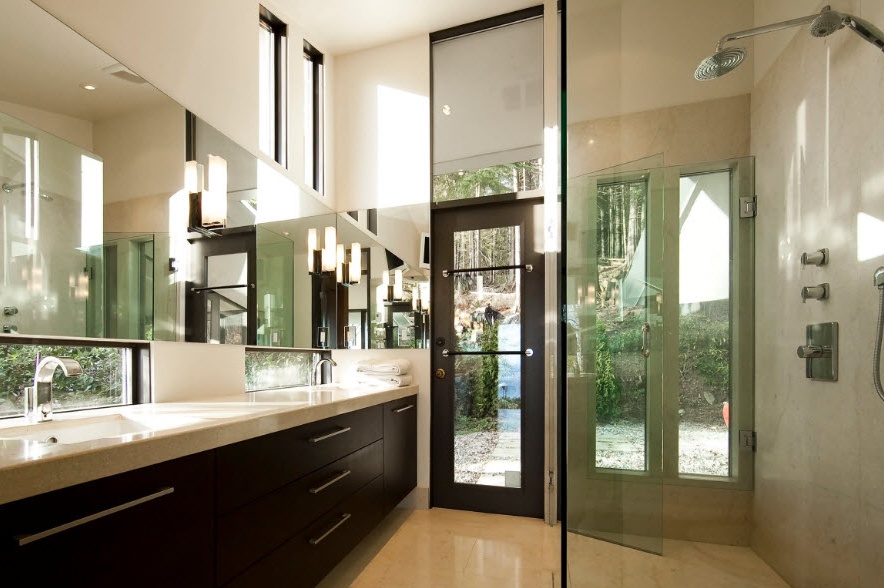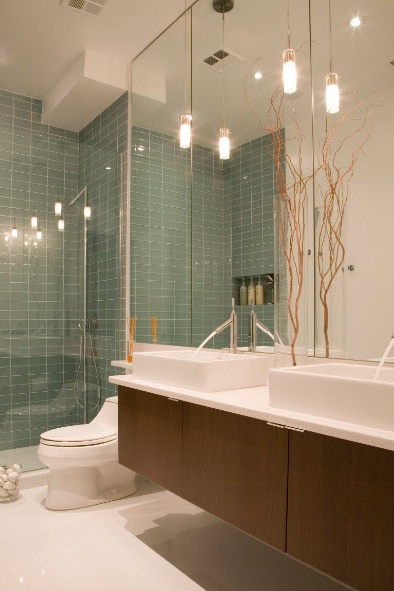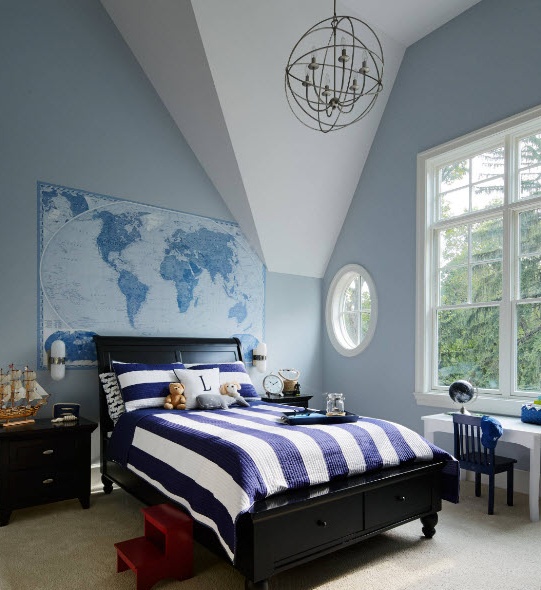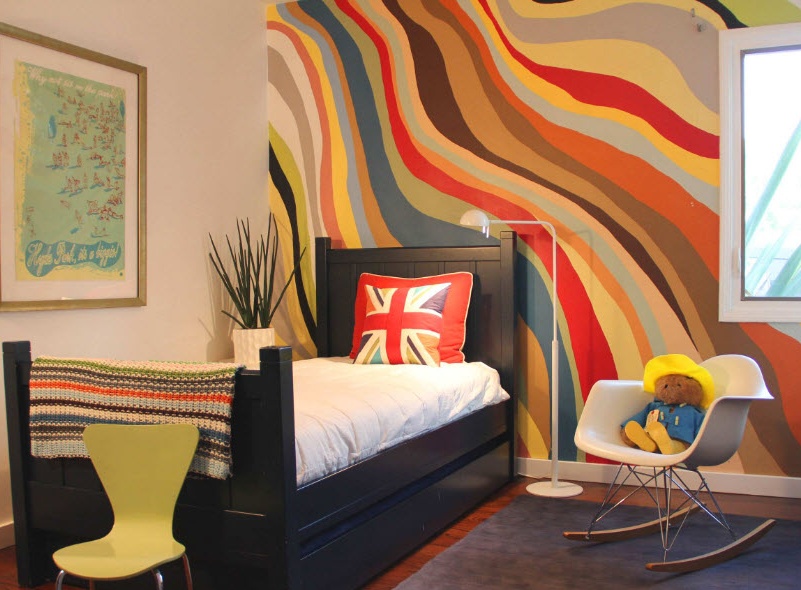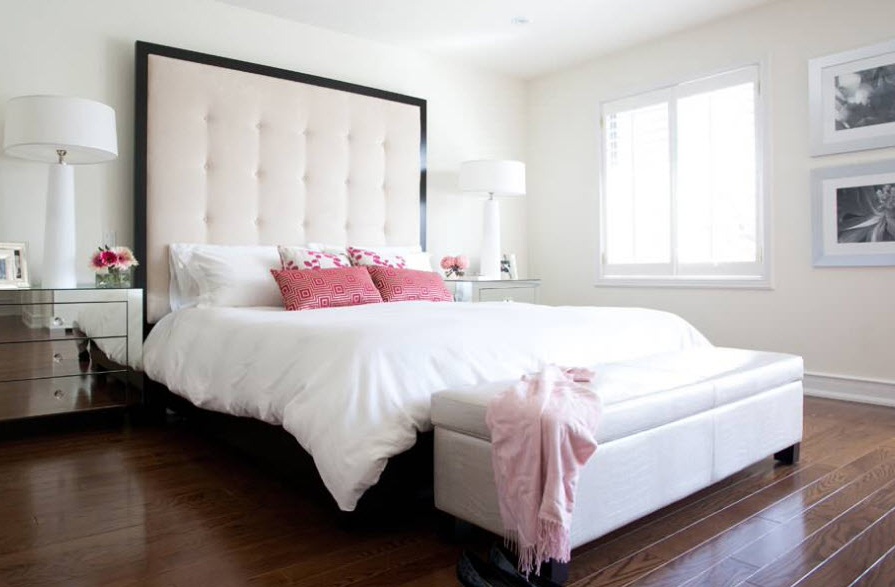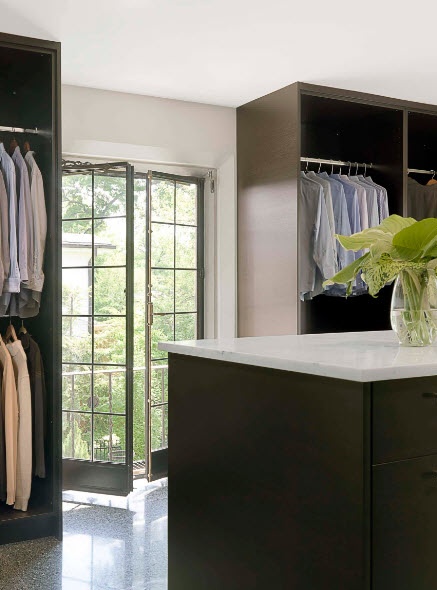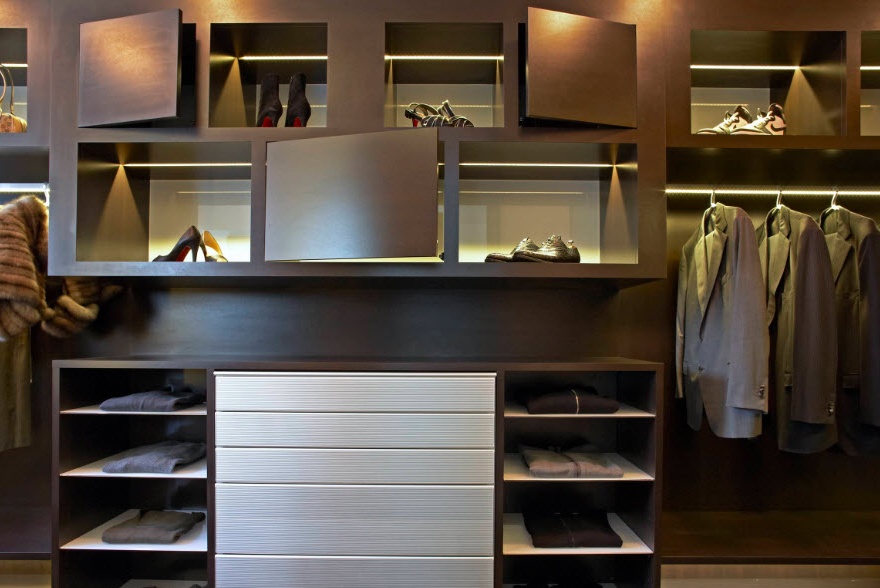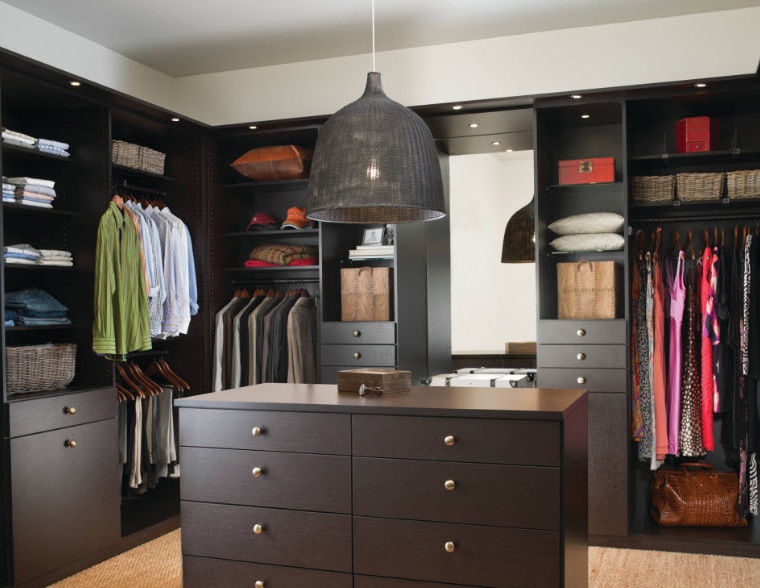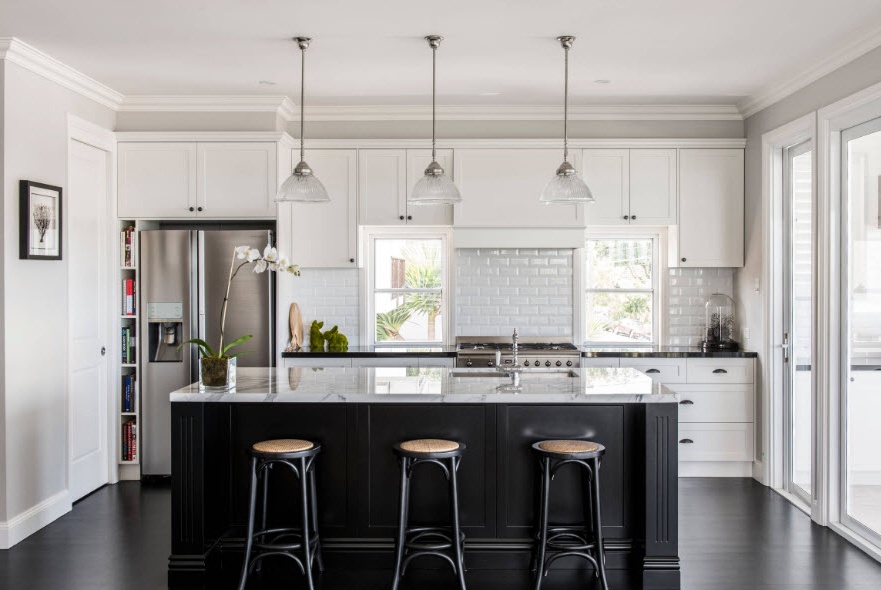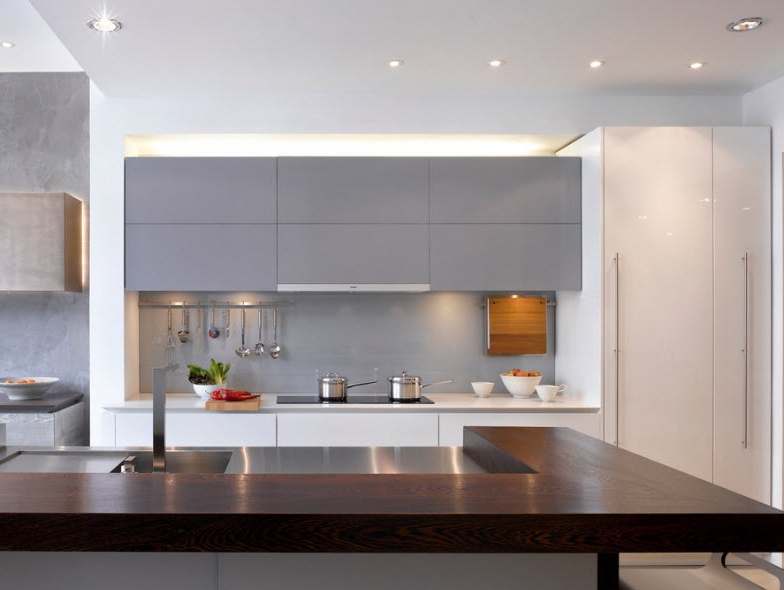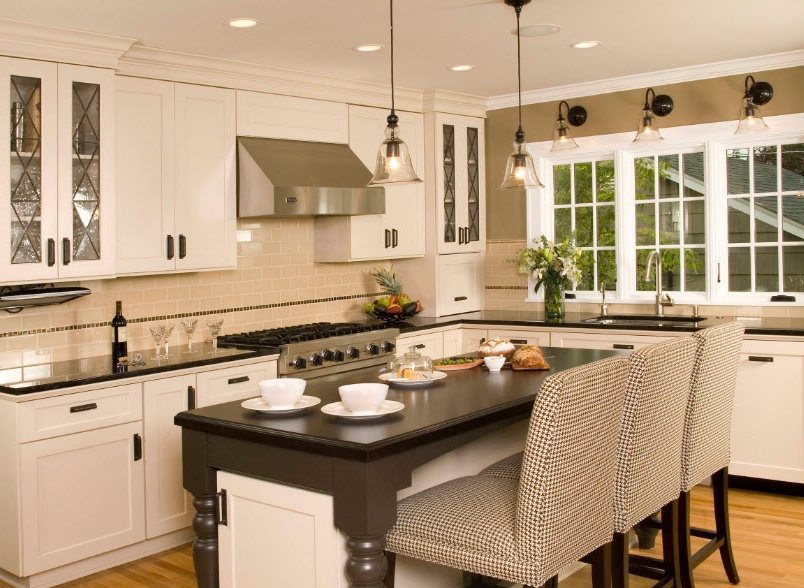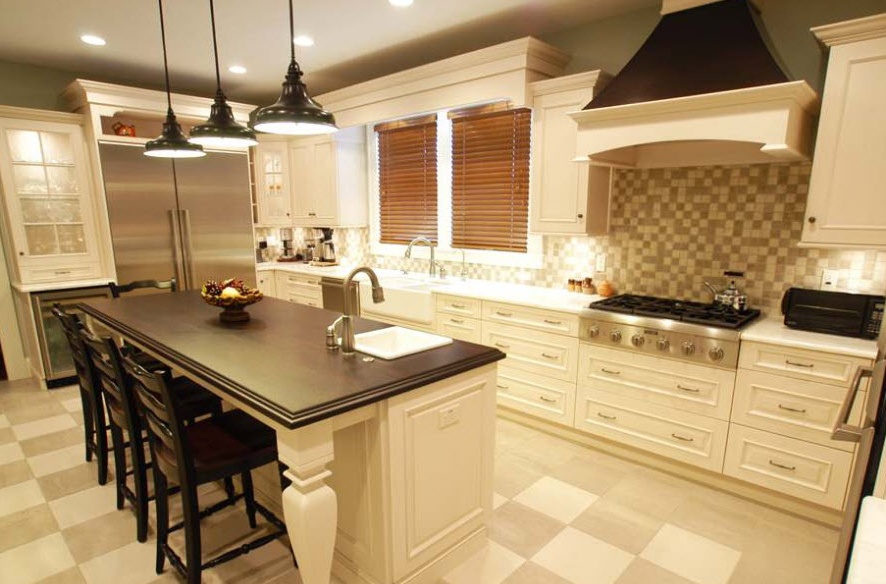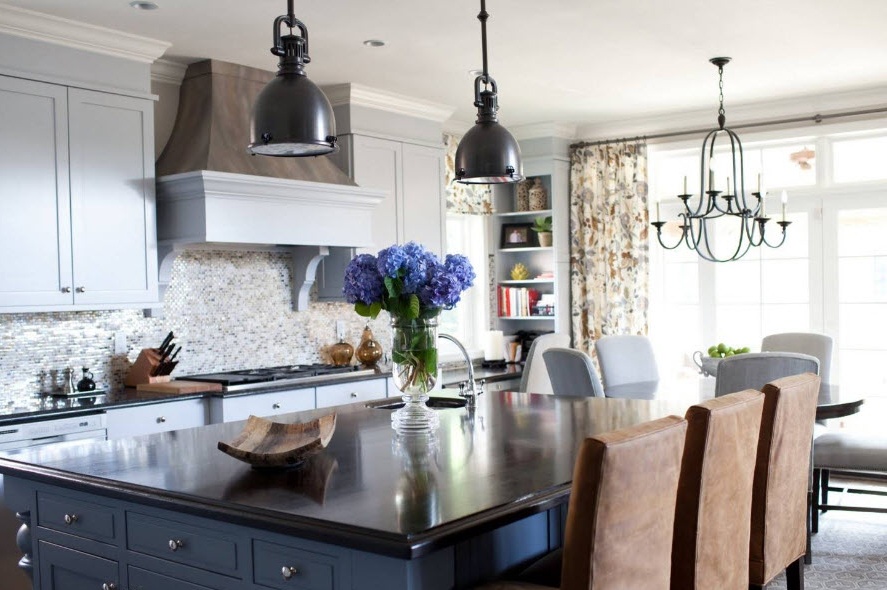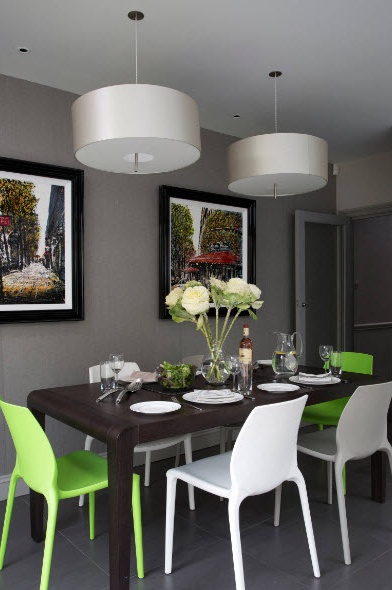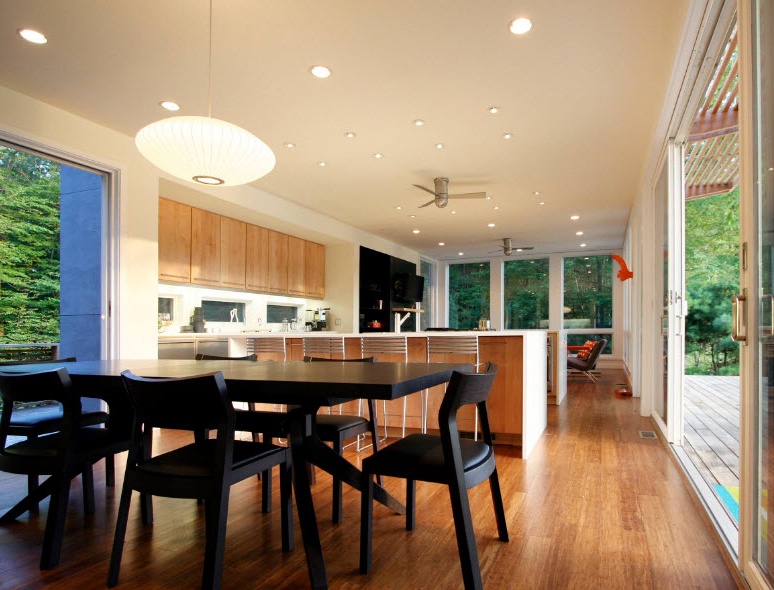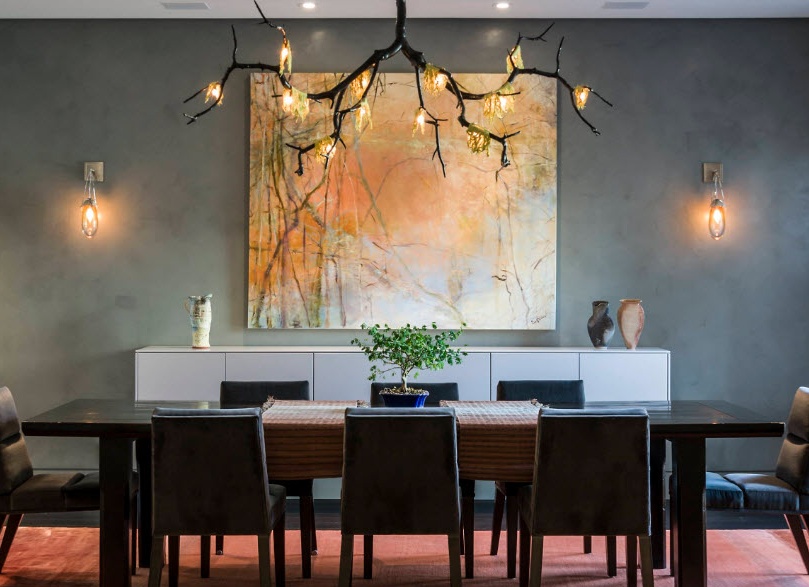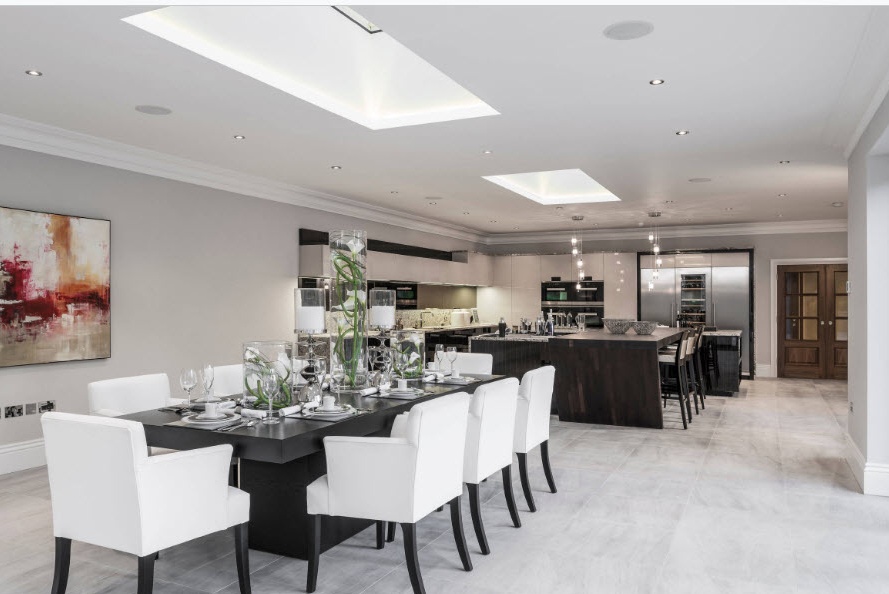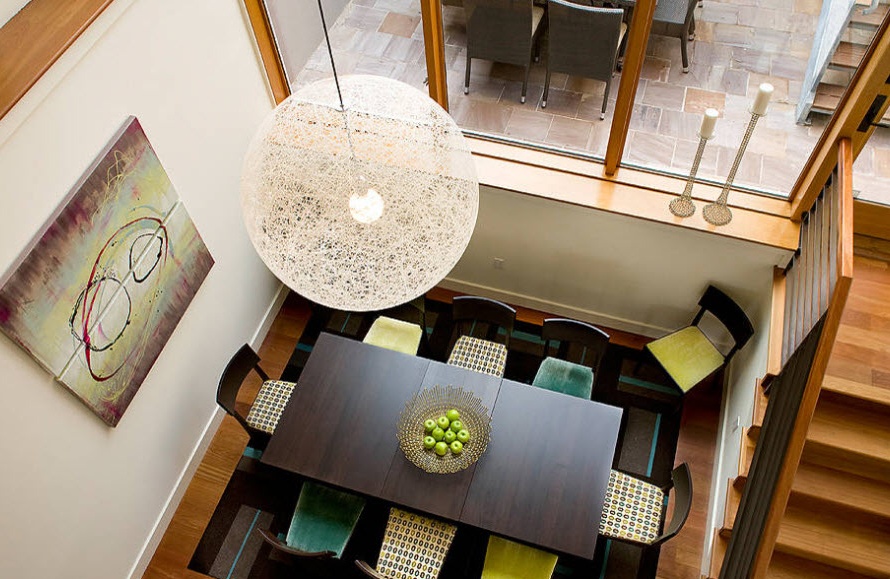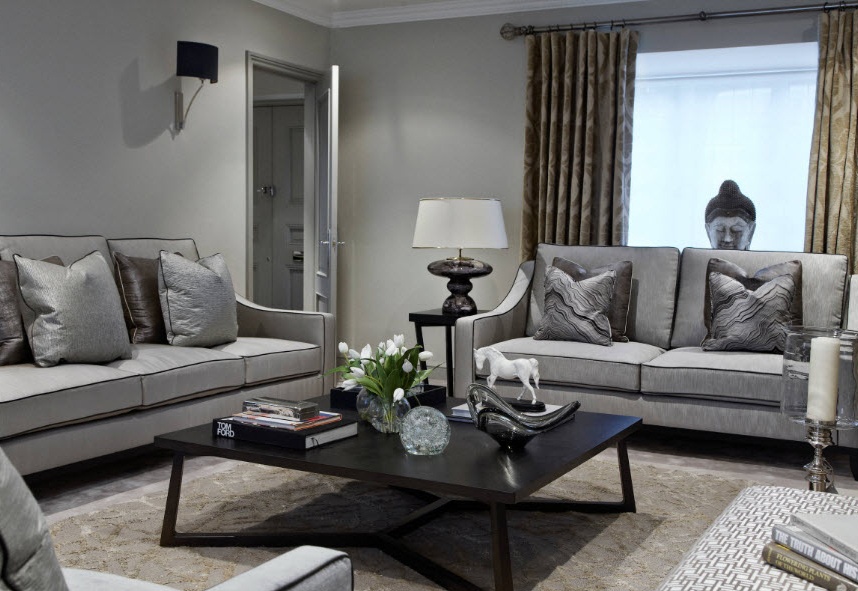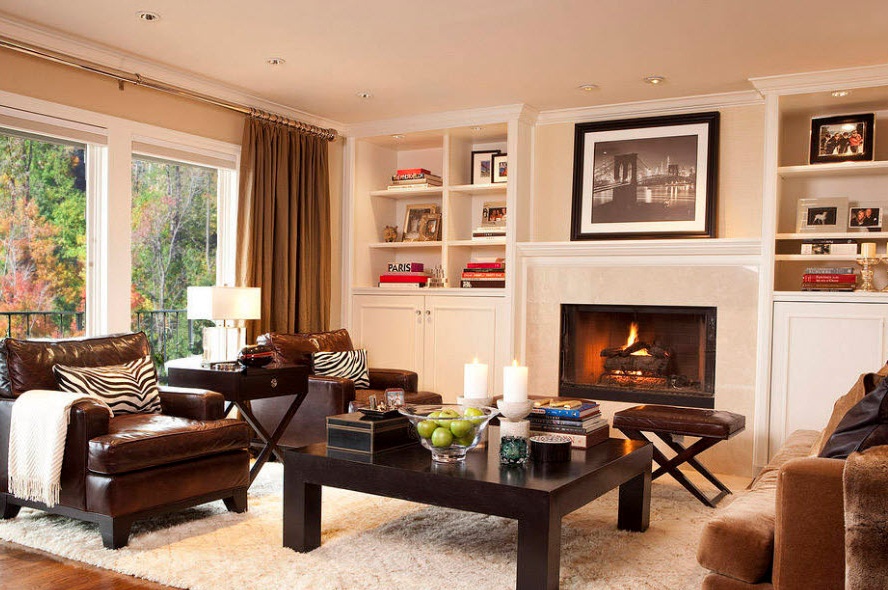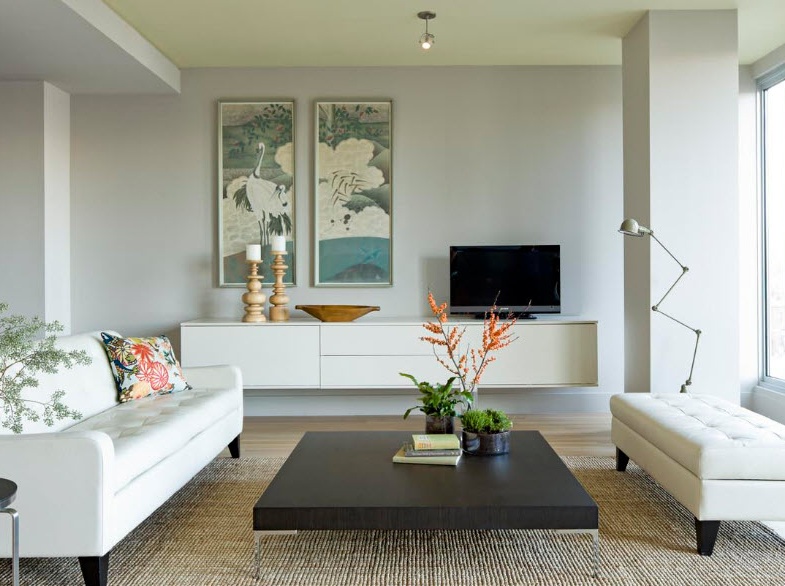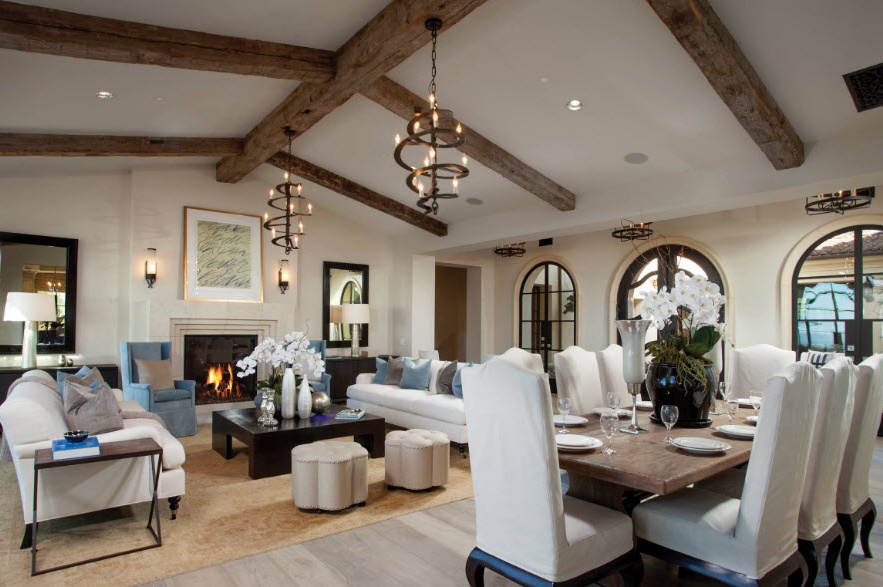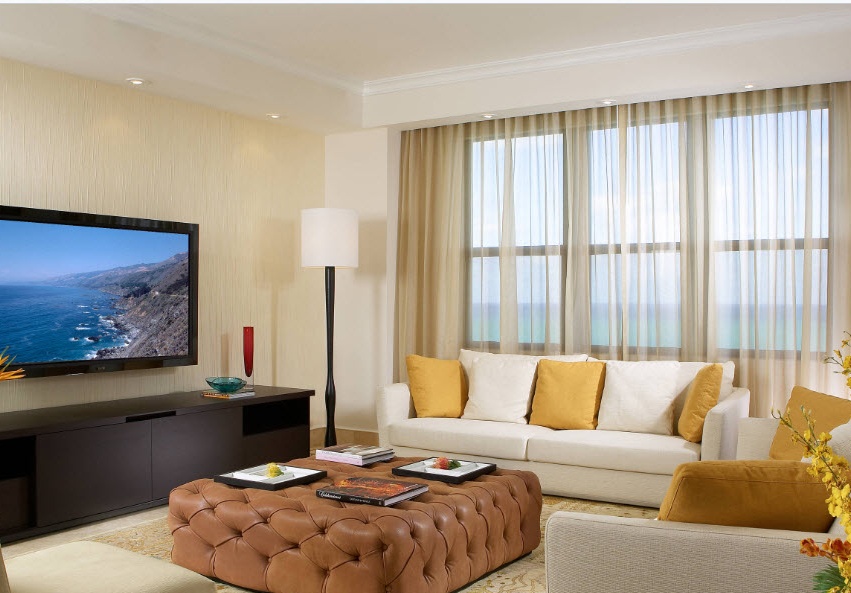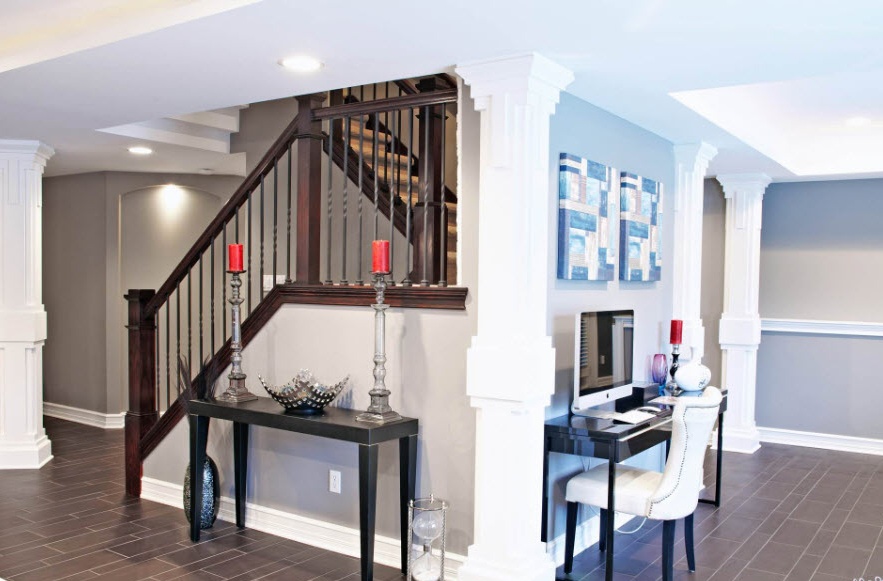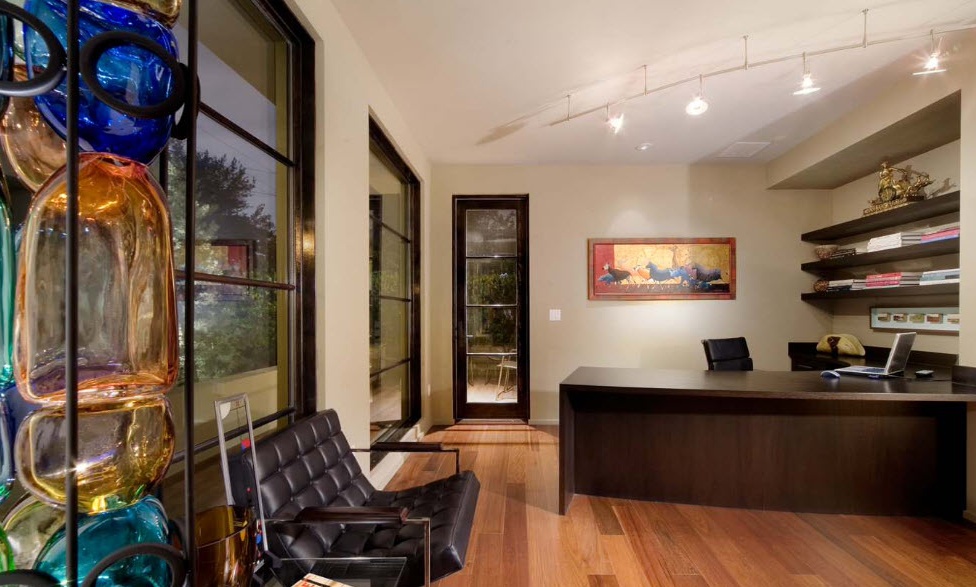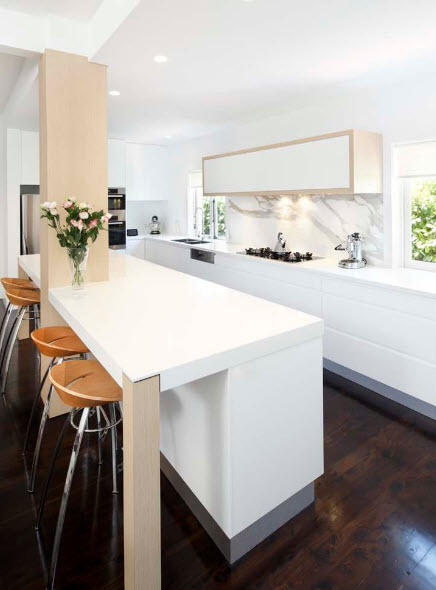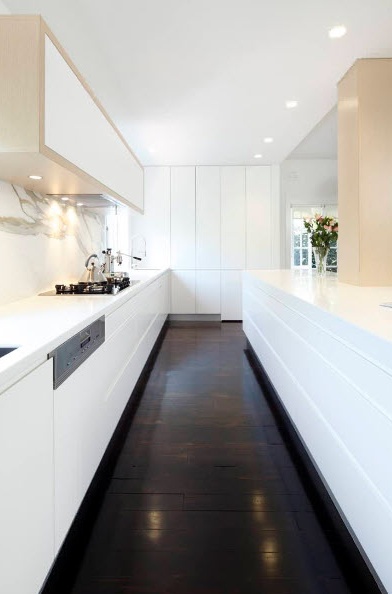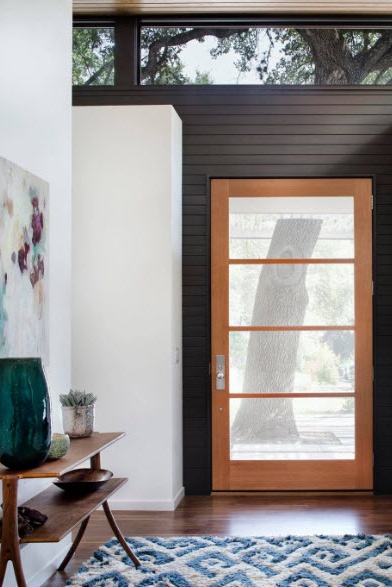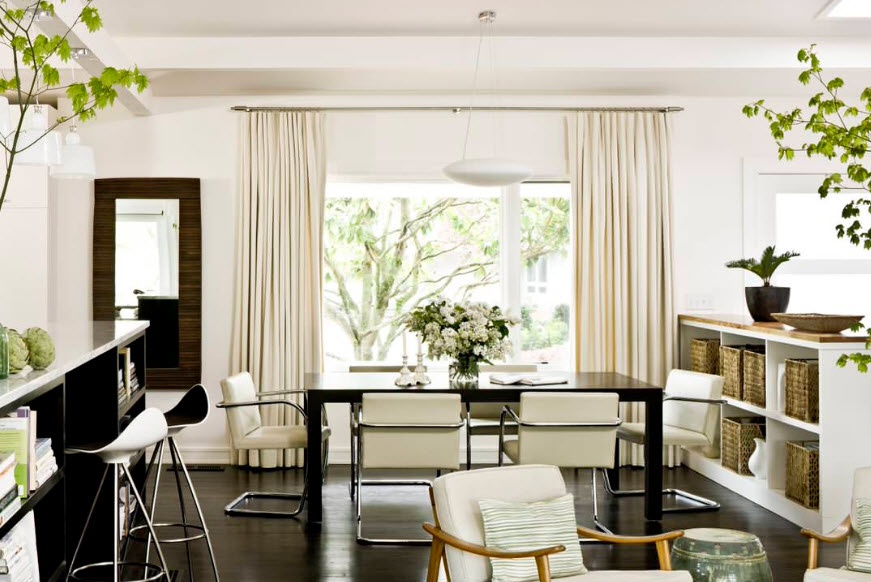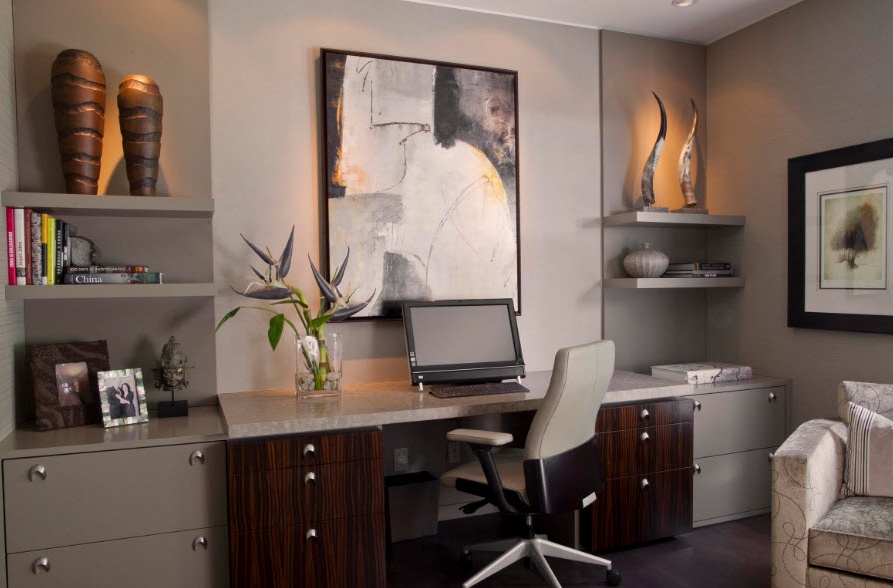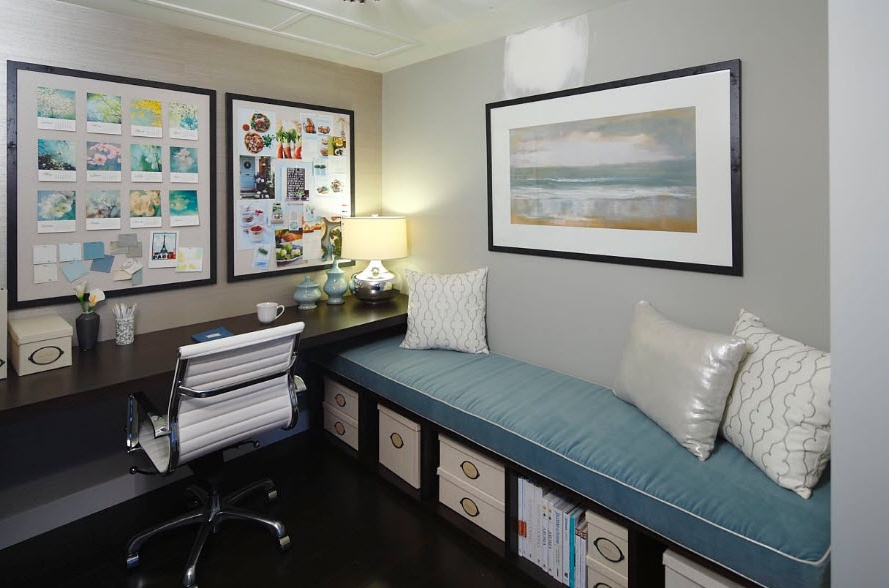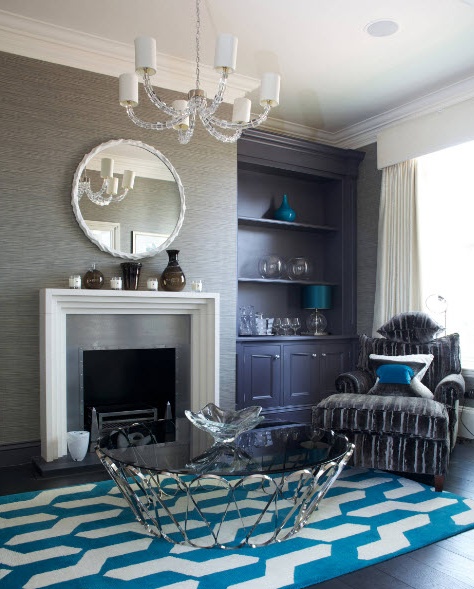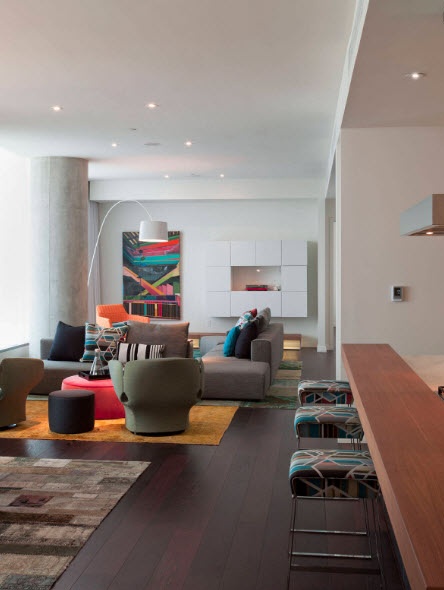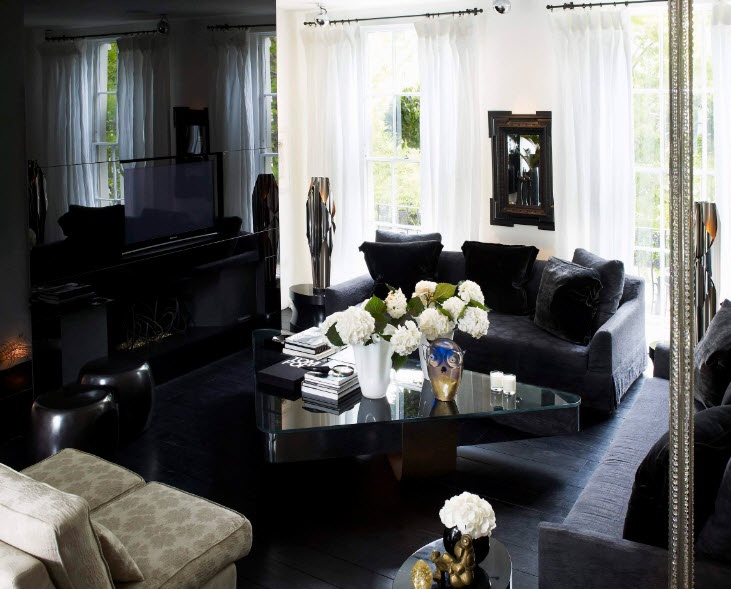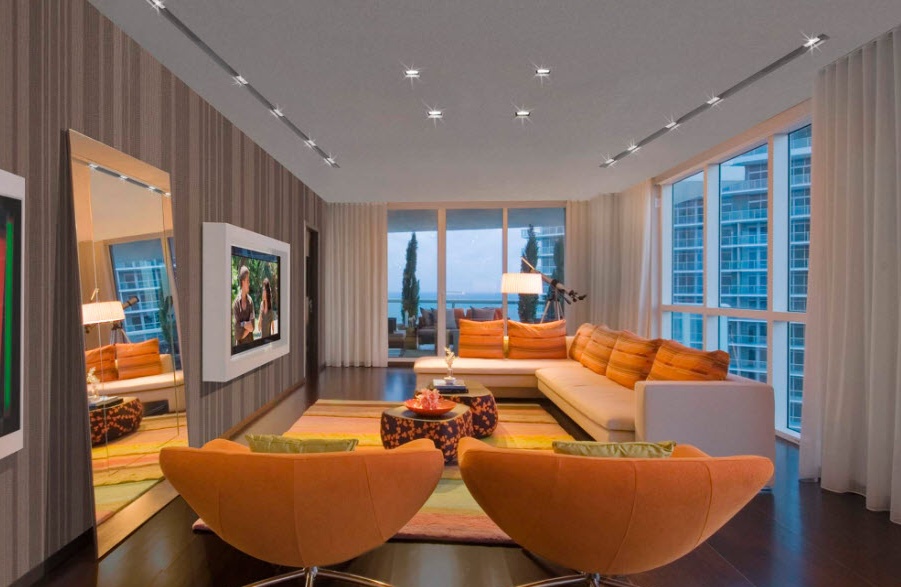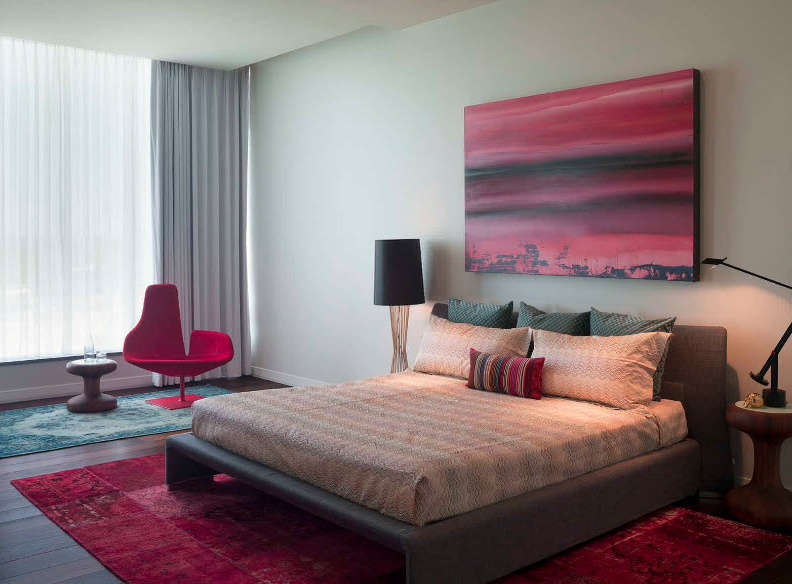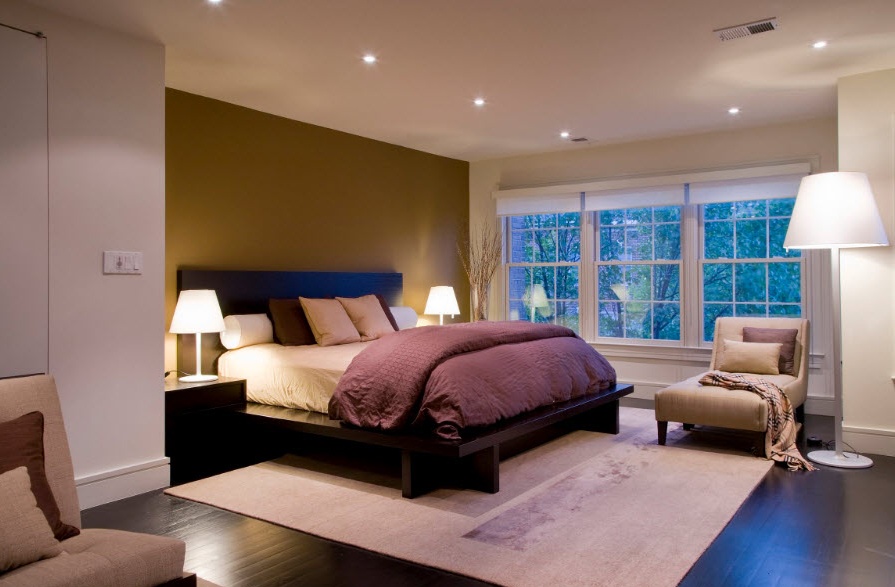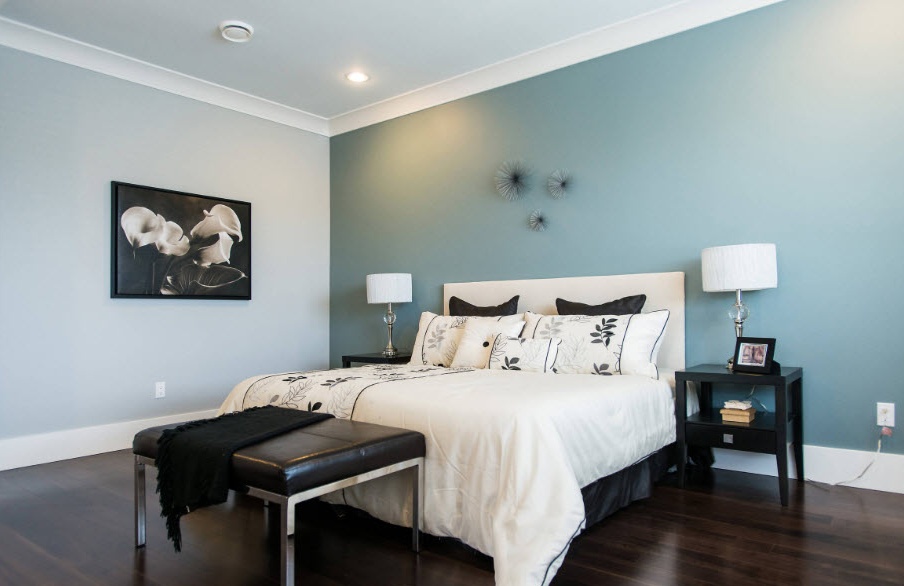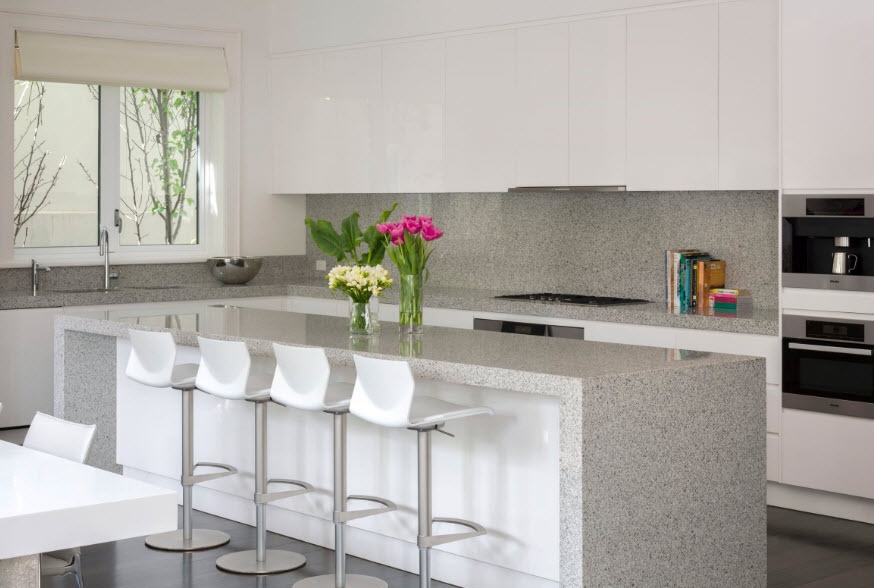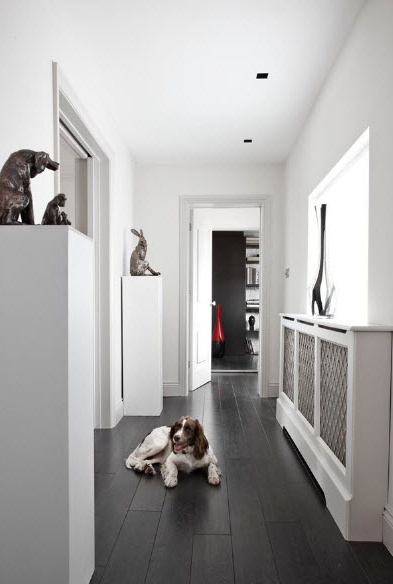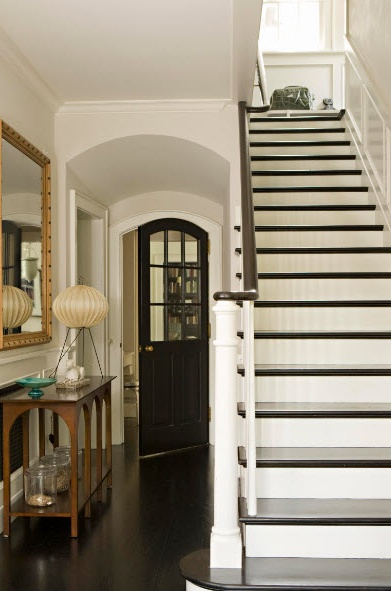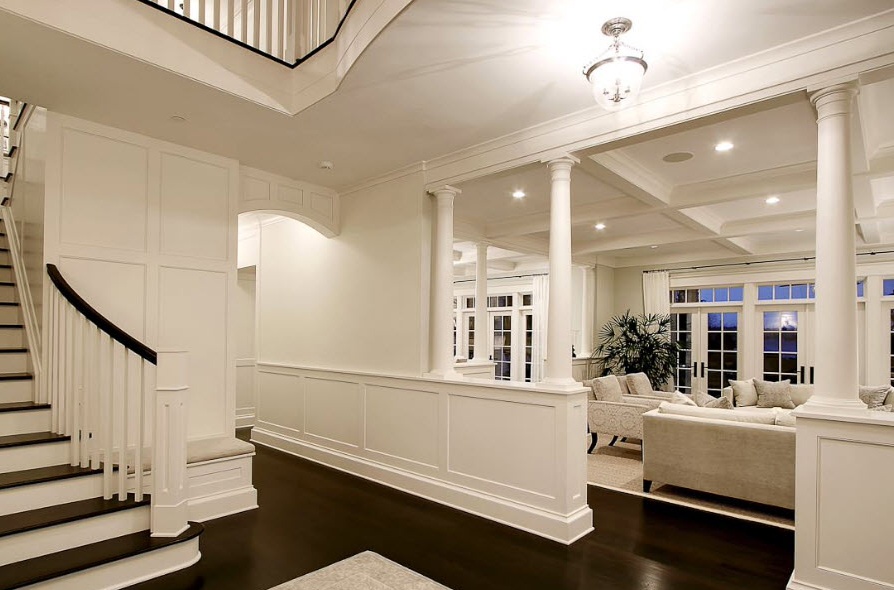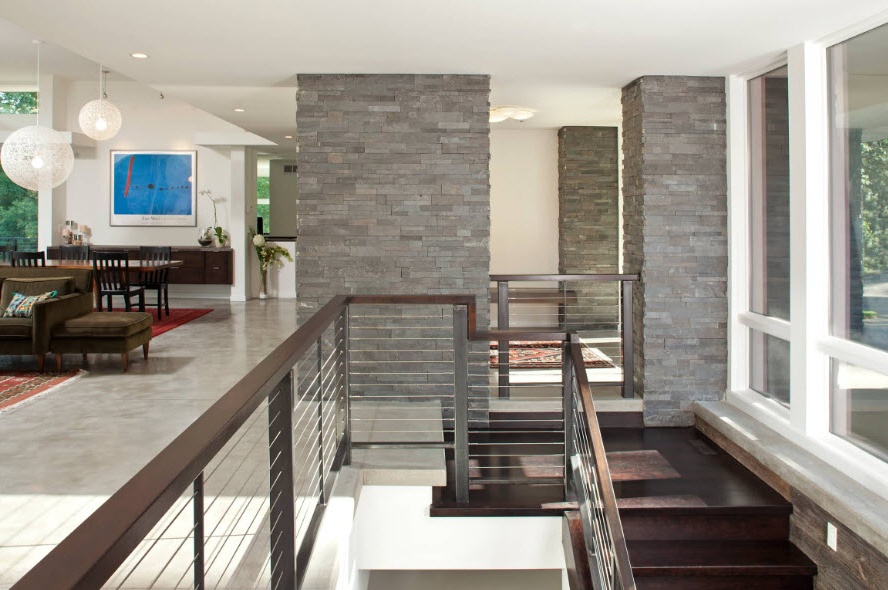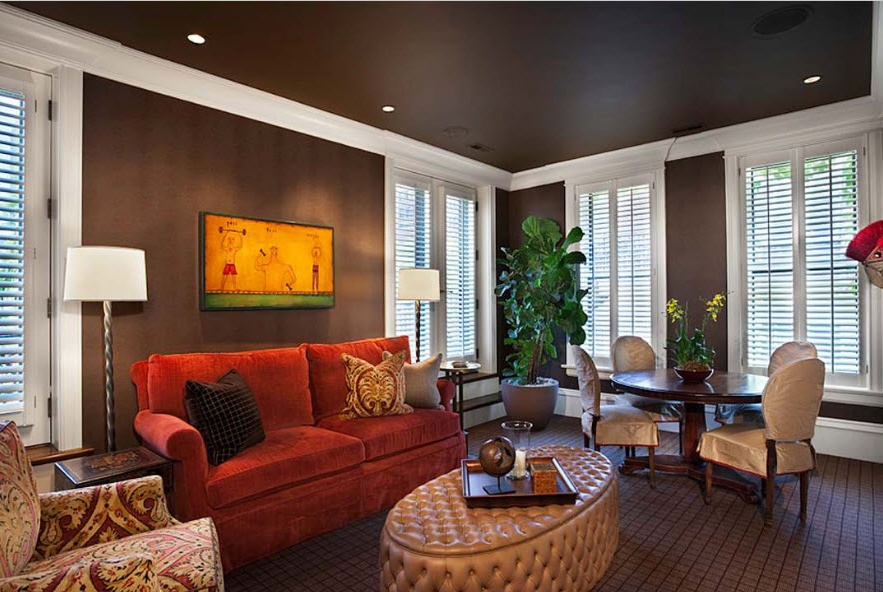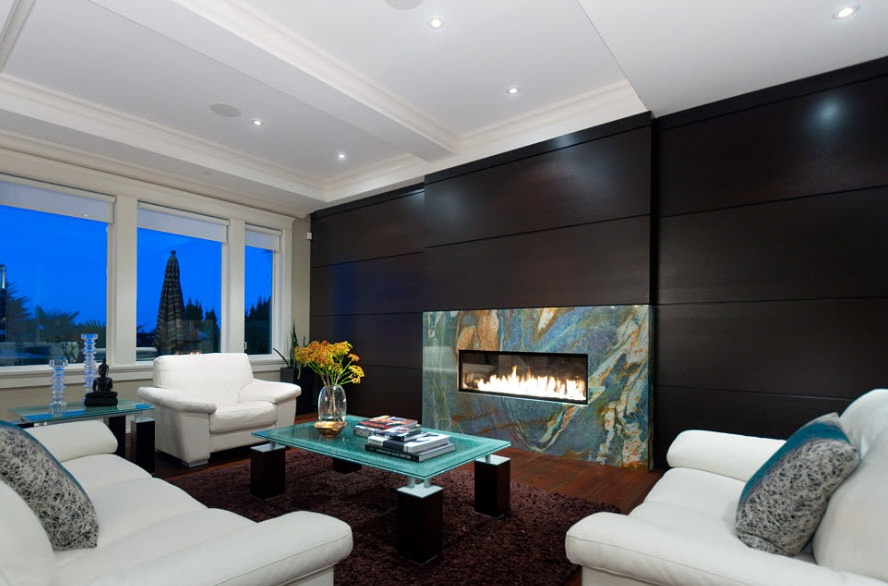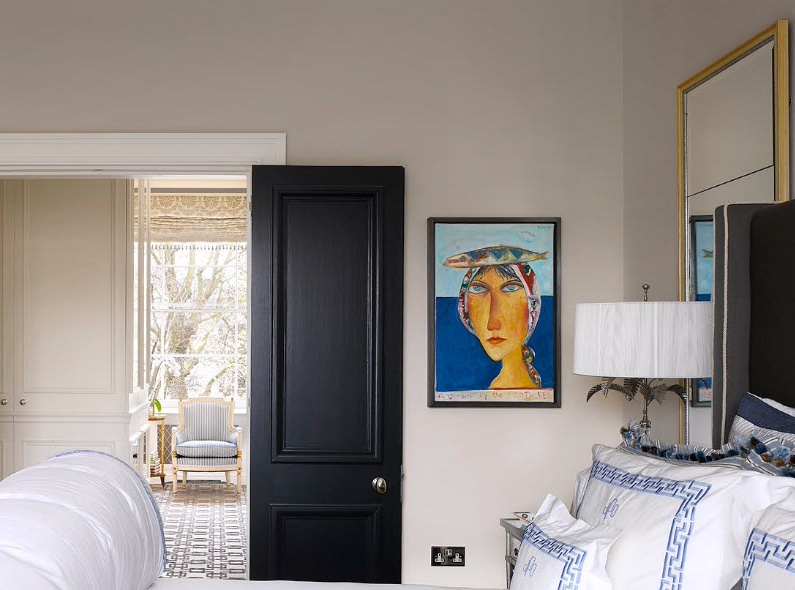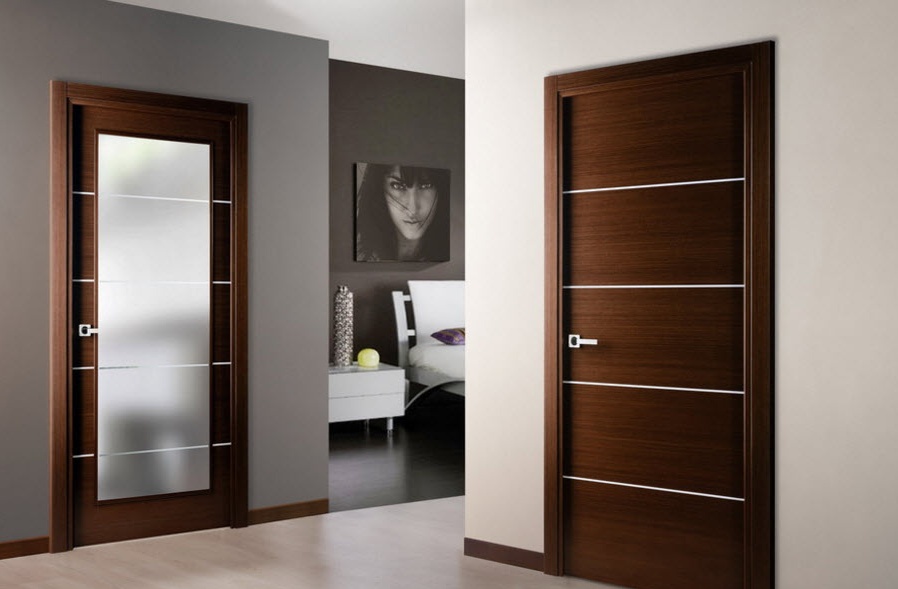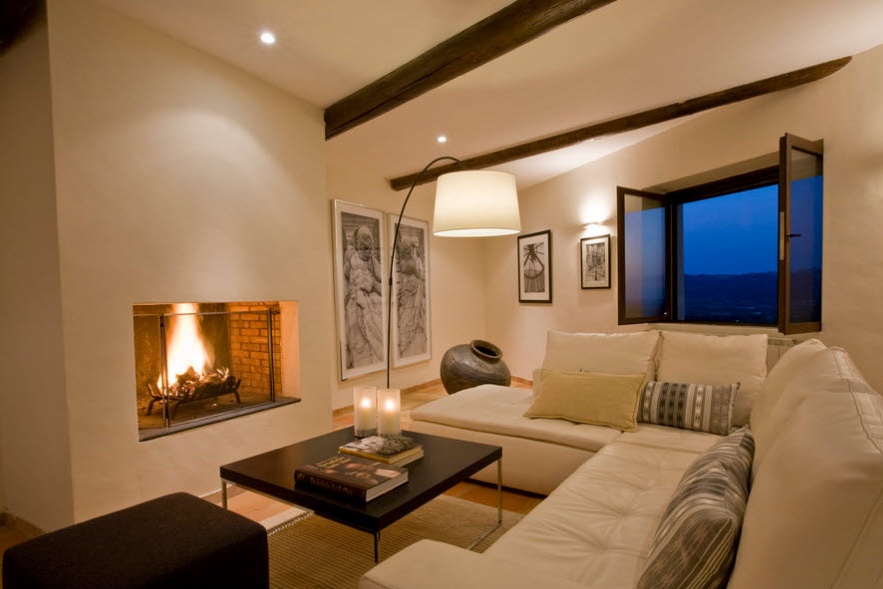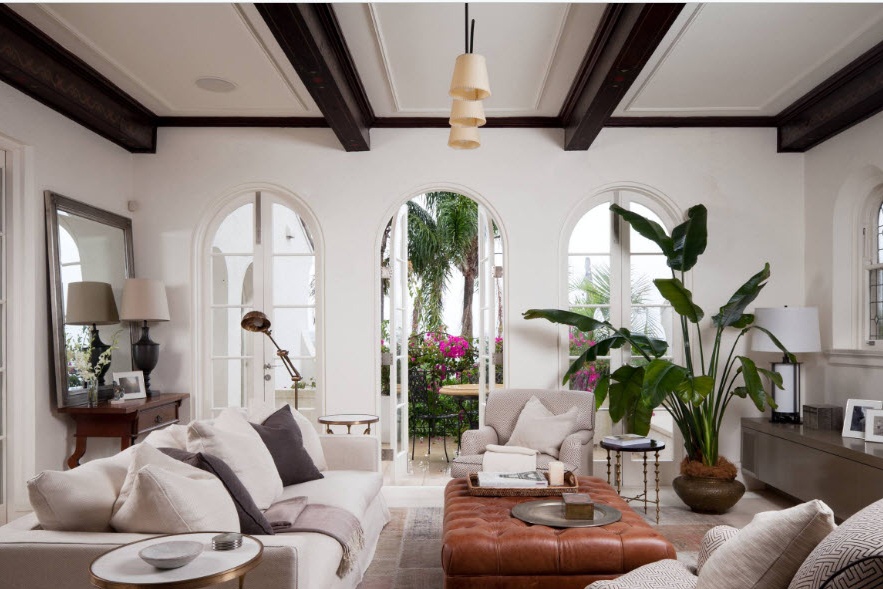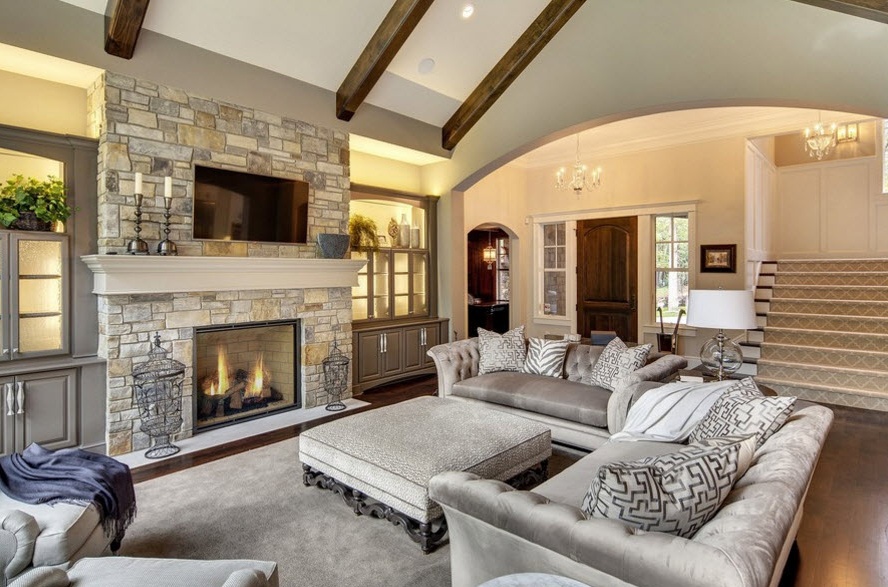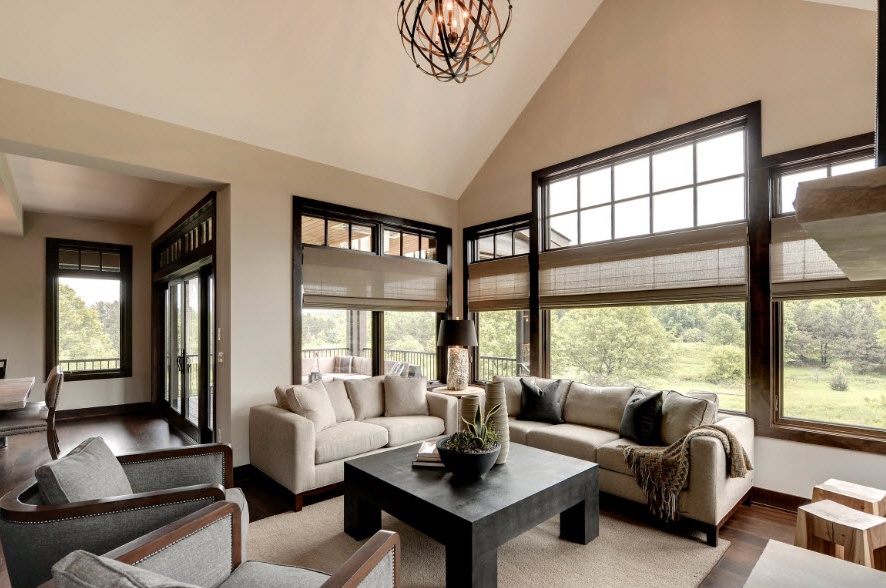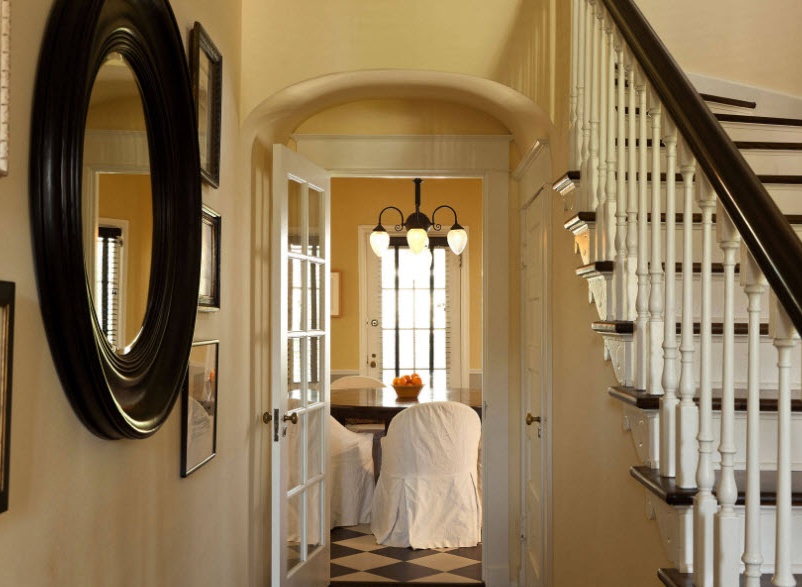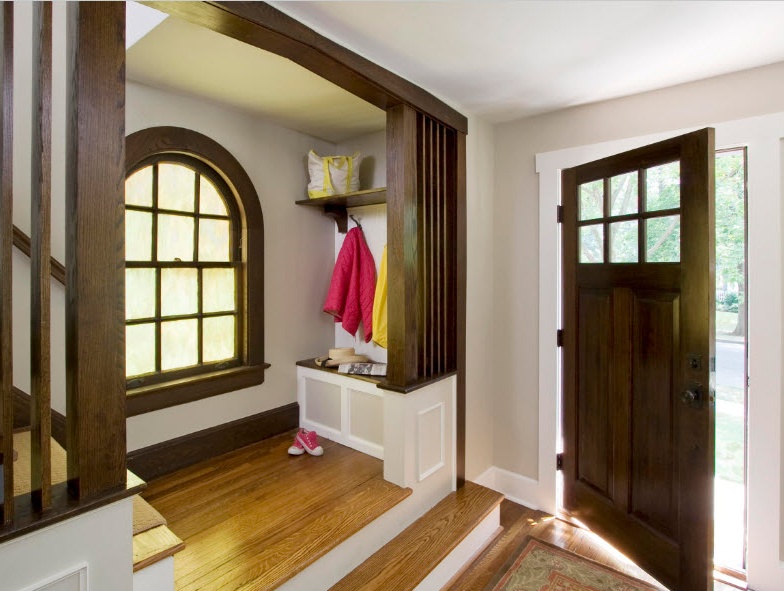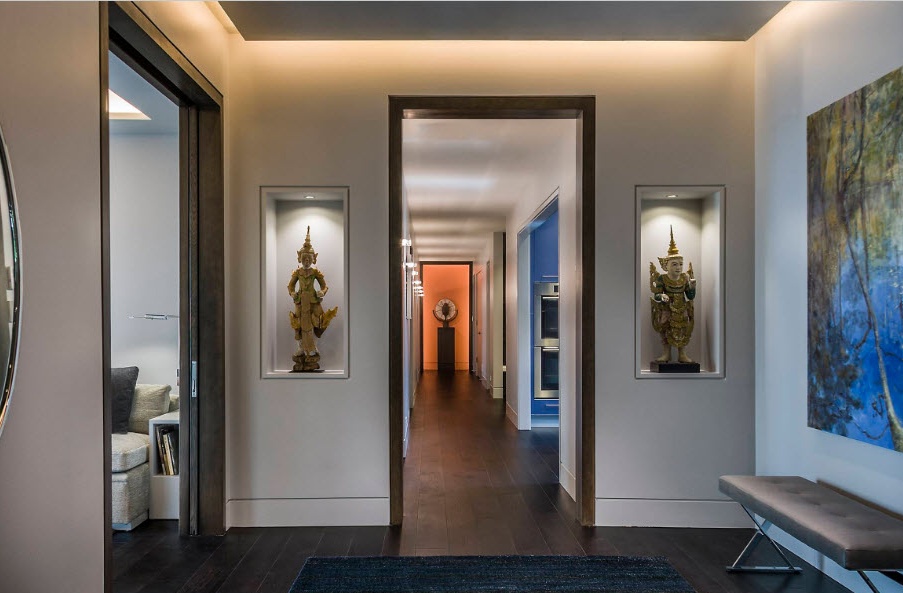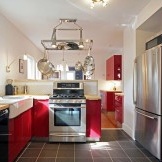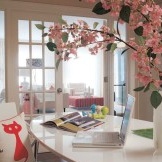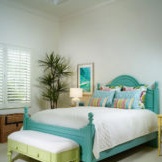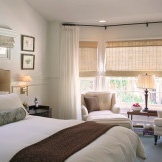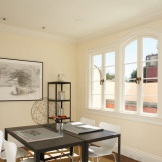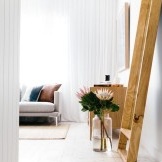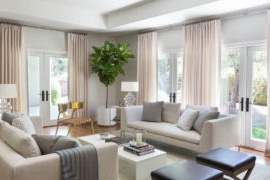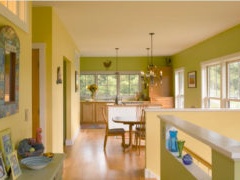Wenge color in the interior: laconic luxury
One of the most valuable species of African wood gave the name to the dark shades used to make furniture, decoration materials, doors and various interior elements. The noble dark shades of wenge can not only effectively emphasize the geometry of the room, but also bring luxury and nobility to the image of the interior. African dark wood is known for its technological qualities - strength, durability and wear resistance, but it owes its popularity, first of all, to the original natural pattern, deep dark shades and original texture. Nowadays, not only residents of the countries of Europe and America actively use the Wenge brand to decorate their homes, our compatriots were also able to appreciate the beauty and luxury of African wood. It is difficult to find a manufacturer of cabinet and built-in furniture, in whose lines there would be no models of wenge color. But African wood is expensive - not every average citizen can afford the purchase of any interior item created from natural material. Dark wood imitations are performed at a very high level: outwardly it is impossible to distinguish natural material from its analogue. Thanks to this, anyone can decorate the interior of their home with a piece of furniture, parquet flooring, doors, beams or any other architectural or finishing solution in this noble and slightly dramatic color.
Features of wenge color
What is the color of wenge used for decorating residential interiors associated with? First of all - laconicism, rigor, drama, conservatism and restraint, luxury and prestige. If you want to create an image of a room in which stability, rigor and respectability are not ambiguously felt, then the color of wenge is your choice. You just need to decide how exactly you want to apply this deep and concise shade - to create a floor covering or to build furniture, to make a contrast design for the entire room or to highlight only one detail?
The color of wenge is often called male, it really has a lot of brutality and even stiffness. It is hardly suitable for decorating even minor elements of the interior of a girl’s bedroom or boudoir, but it will look luxurious in the living room, kitchen or dining room, study and even the bathroom. Many of us with the phrase “wenge color” most often represent a dark brown, almost black shade. But African wood is very ambiguous, its structure is quite complex. Depending on the lighting and companion colors, the color of wenge may appear in front of us in the form of a shade of dark chocolate, a coal-ash tone, or almost black.
The wenge color palette has a narrow, but very "dramatic" spectrum of shades - from chocolate (dark brown) to almost black, with a slight purple tint. A real African tree even has a special light glow - due to the finest golden streaks visible only through a magnifying glass.
But whatever the choice of shade of wenge color, one thing is clear - the whole spectrum is represented by rather dark and heavy tones. That is why designers recommend using this noble color dosed and combining it with light colors. For example, if the flooring in the room is made in one of the shades of wenge, then the walls and ceiling should be light. This approach will not only help not to "load" the image of the room, but also visually increase the height of the ceiling of the room. But white has many shades.If you need to create a warm, albeit emphasized contrasting picture of the room, then you need to choose wenge from the "chocolate palette", and white from the dairy group. If you need a strict, intentionally dynamic interior, then a boiling white tone in combination with a dark brown, almost black wenge will be the best combination.
Wenge color for cabinet and built-in furniture
Most often, wenge color is used in the production of cabinet and built-in furniture. Cabinets and cabinets, kitchen sets and small tables, storage systems of various modifications, dining and writing tables, chairs and mini armchairs, beds and any other pieces of furniture that have a frame - the wenge color is suitable for all parameters in order to complete a design in a modern style. Wenge-colored furniture is most logical to use in an interior with a light finish - so the dark severity of African wood can be presented most effectively. Whether to use color accents in such a contrasting image of the room is your choice.
But the color of wenge as a shade for the execution of kitchen facades also has drawbacks - such surfaces will require special care. The fact is that even dried drops of water and fingerprints are visible on the dark cabinet doors. Another nuance of using kitchen wenge facades is associated with the use of natural wood. If you are a happy owner of furniture made from natural material, you will have to make sure that it does not fall in direct sunlight. Color over time can fade in the sun and significantly brighten.
Furniture ensembles
One of the most popular options for using wenge color in modern furniture production is the execution of kitchen sets. Whether it is a ready-made furniture solution or an ensemble of custom-made storage systems, one thing is important - a stylish, respectable and concise appearance of your kitchen will be ensured. Brightness can be added due to the execution of a kitchen apron in a colorful color or the choice of a color scheme for textiles - curtains for windows, tablecloths for a dining table, upholstery of bar stools.
The color of wenge has an incredibly positive effect on the formation of the interior in terms of emphasizing the geometry of the room. Dark shades seem to discipline the overall design, give rigor, orderliness to the picture of the interior. The space looks stylish, concise, but at the same time elegant, respectable.
If you use the color of wenge for the execution of the lower tier of kitchen cabinets, and for the upper level of storage systems choose a light shade, then you can achieve a visual increase in the height of the kitchen room.
Even the lightest shades of wenge color are dark enough to execute a large-sized kitchen ensemble. If the furniture set will occupy most of the room, and even occupy space from floor to ceiling, it is necessary to “dilute” the dark facades with fittings, glass inserts on the doors of the upper tier (with absolutely smooth facades, the kitchen will look very strict and even gloomy).
But not only in kitchen spaces, the color of wenge looks luxuriously as the main tone of storage systems. For example, in bathrooms, cabinets under the sinks can be executed in dark colors, thereby emphasizing the radiance of the whiteness of plumbing. To create a harmonious image of a utilitarian room, the dark color can be repeated in the mirror frame or a pair of open shelves next to it.
For the modern style of bathroom design, you can choose absolutely smooth facades of storage systems. The interior will only benefit if the cupboards under the sinks are the only dark spots in the light bathroom design.
Another type of furniture ensemble that can be made in wenge color is a bedroom set. A finished furniture solution usually includes a bed, a macaw of bedside tables and a wardrobe.In some ensembles, a bulky wardrobe is replaced by a compact chest of drawers - the weight depends on the size of the room and its layout. But it is important to understand that such a furniture solution can withstand a fairly spacious bedroom with good natural light. For rooms of small sizes, it is better to dwell on the choice of wenge-colored furniture as a dark accent - only a bed, chest of drawers or nightstands will be dark spots on a light background of a bedroom.
If in most standard apartments there was the possibility of allocating a separate room for arranging the dressing room or in the bedroom there would be enough space to design such a zone, the wenge color could be recommended for the implementation of numerous storage systems. Furniture ensembles for a wardrobe of dark chocolate or ash-black color look respectable, impressive, expensive, but at the same time concise.
Wenge color furnishings as an accent
The color of wenge is noble, strict and at the same time exquisite. But not every owner can use it in large quantities, most often the sizes of rooms in standard apartments do not allow a large number of dark surfaces. There is a way out in the form of using furniture or small structures in dark color as accent elements. For example, in a kitchen it may be the facade of a kitchen island or a peninsula ...
In the kitchen space, a dark accent can be created by the execution of countertops made of African wood (or its spectacular counterparts). Against the background of light facades, such an emphasis will look especially impressive.
In the dining room or dining area as part of the combined space, the dining table may be emphasized. Any serving looks great on the dark surface of African wood. In terms of choosing chairs for such a table, there are two ways to go. The first is connected with the choice of chairs or mini-chairs from the same material, which will create a harmonious dining group. The second way involves a contrasting version of the chairs - light (most often snow-white, looking especially dazzling against a dark table) or color - the weight depends on the design of the entire room.
In the living room, such an element could be a coffee table or a small storage system ...
In the office or in the workplace area within the combined space, the dark spot may be a desk or a work console ...
Wenge hue for a modern home
Another popular area for the use of African wood for decorating living spaces is the decoration of various surfaces. Obviously, even the most spacious and bright room is not able to withstand the wall decoration in such a dark design. Therefore, wenge is most often used to create an accent - they distinguish beams or supports, mount inserts from laminate coatings, use dark-tone moldings. For ceiling decoration, wenge can only be used for the installation of ceiling beams. But for the flooring, you can safely use the dark colors of the parquet board or laminate.
Coverings
As a decoration, wenge color material is most often used to create flooring. Against a dark background of floors, light or colored furniture and any decorative elements look most effective. In addition, the dark execution of the floors, together with light walls and the ceiling gives a visual increase in the height of the room, which is very important for apartments of standard layout.
Wenge color is used to create spectacular imitations of African wood. Such flooring can be used in living rooms ...
Bedrooms and children's rooms ...
In the kitchen and dining rooms ...
As part of the auxiliary premises - the entrance hall, corridors and spaces near the stairs ...
Porcelain tiles are used for bathrooms and toilets, imitating not only color, but also the texture of African wood.
As a wall decoration, wenge color is rarely used even to create accent surfaces.Not every room can afford such a dark design - not only the scale of the room itself is needed, but also a high level of illumination (one panoramic or a couple of standard windows, at least). But if such conditions are met, then you can create a truly non-trivial interior of the room, with original decoration and some drama in the mood.
Structural elements
One of the most popular options for the execution of structural elements of the interior in dark color is interior doors. Obviously, against a light background, the wenge-colored doors inevitably become accent elements. Beautiful models with moldings and various inserts add a touch of luxury to even the most neutral room design. Solid door leafs in dark color streamline the space, make it more rigorous, geometrically emphasized, concise.
A spectacular, contrasting, dynamic and at the same time non-trivial way to create an original ceiling design is to use ceiling beams in the color of wenge. Infrequently, the ceiling can become accentuated in the interior, but with the help of deep chocolate or brown-black shades of wenge, such a design technique is not difficult to apply. But it is important to understand that such a ceiling design is suitable only for spacious rooms with sufficient height, otherwise dark beams will visually “crush” everyone present.
Another way of introducing contrast and sharpness of geometry into the design of rooms is to highlight certain surfaces using plinths, moldings, framing window and door openings (casters), columns and supports using dark shades of wenge.

